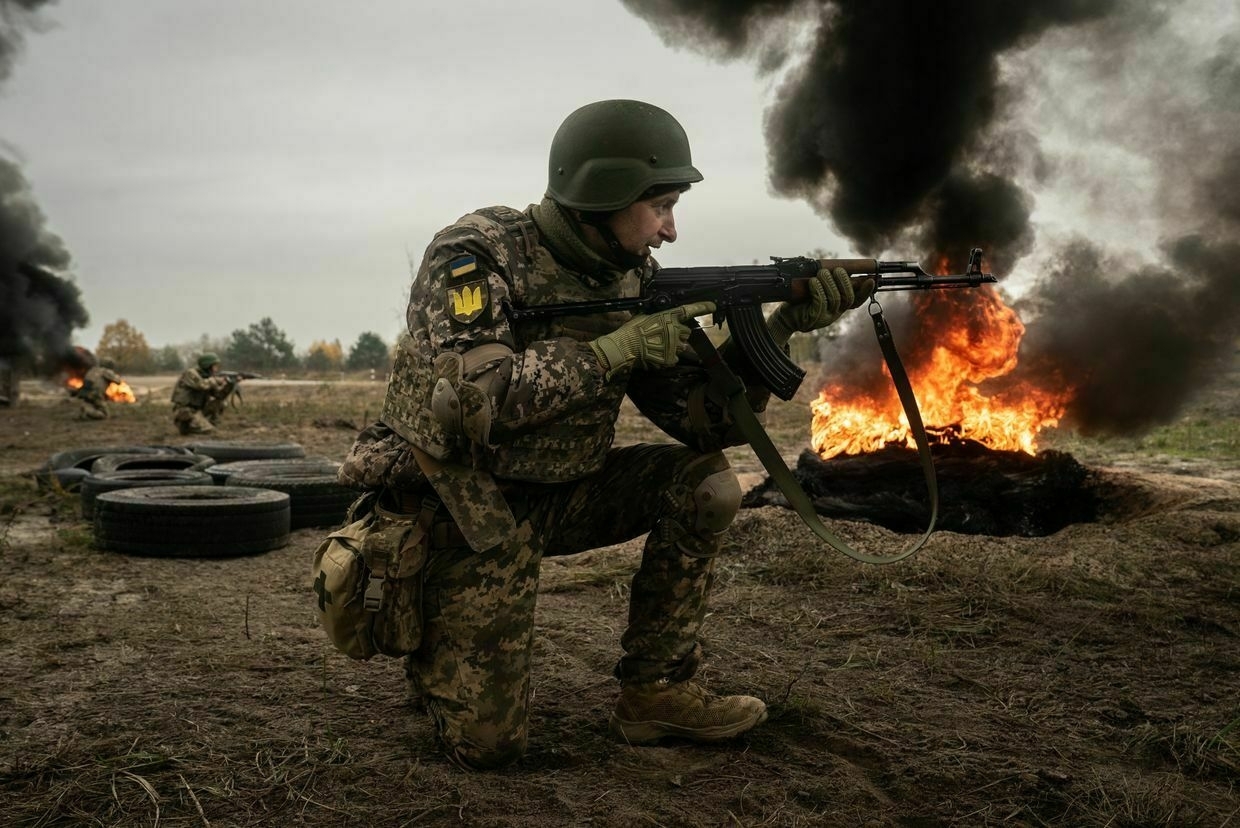-
Ukraine’s democracy faces collapse as civil society aid disappears
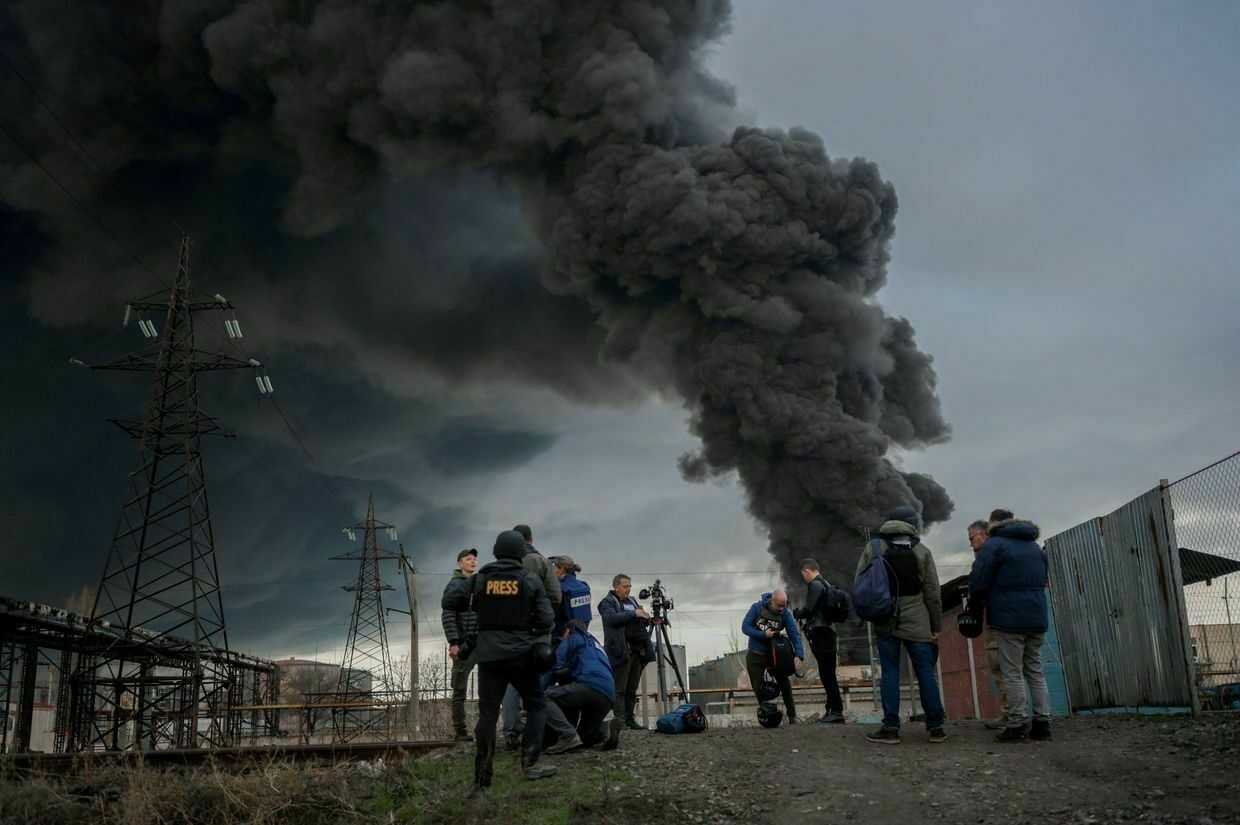
The space for civil society and a free press is shrinking dramatically after U.S. President Donald Trump’s administration launched a war against American aid, which had long supported crucial social initiatives and journalism in countries in need. Following that crisis, the United Kingdom announced plans to cut international aid in order to increase defense spending. Its Foreign, Commonwealth, and Development Office has already cut resilience programs across Europe, including in Ukraine, Central Europe, the Baltic states, and beyond.
Similar trends are occurring across European Union countries. For example, Germany is increasing its security budget, and the new conservative government is unlikely to prioritize international humanitarian support, as it’s not a focus for the coalition’s parties. As Daniel Hegedus, Regional Director for Transatlantic Trusts in Central Europe at the German Marshall Fund of the U.S., recently noted during the NECE Lab discussion, the EU has “de-invested in civic education,” while “soft power is cheaper than actual weapons.”
The trend is clear: after the Munich Security Conference, where U.S. Vice President JD Vance declared a “divorce” with the EU, there is no longer the sentiment in Europe that a major war is avoidable. At the same time, civil society institutions and the press are no longer viewed as essential to Western countries, despite their critical role in maintaining democracy and survival.
The cuts in international aid have affected millions of people in Ukraine. These reductions have harmed crucial efforts to protect Ukrainians — ranging from organizations delivering HIV medication and providing PTSD treatment for veterans and civilians, to war crimes investigations and initiatives to identify children abducted by Russia, to evacuation programs in front-line cities and first aid and hostile environment training.
Since the start of Russia’s full-scale invasion, the 2402 Foundation (Daily Humanity), which I co-founded, has been providing protective gear, security, and resilience training to journalists and civil society organizations working on the frontlines — at no charge. We’ve built security resilience through innovative skills-building programs to share knowledge on resisting various threats. Now, we too are at risk of closure due to the aid cuts.
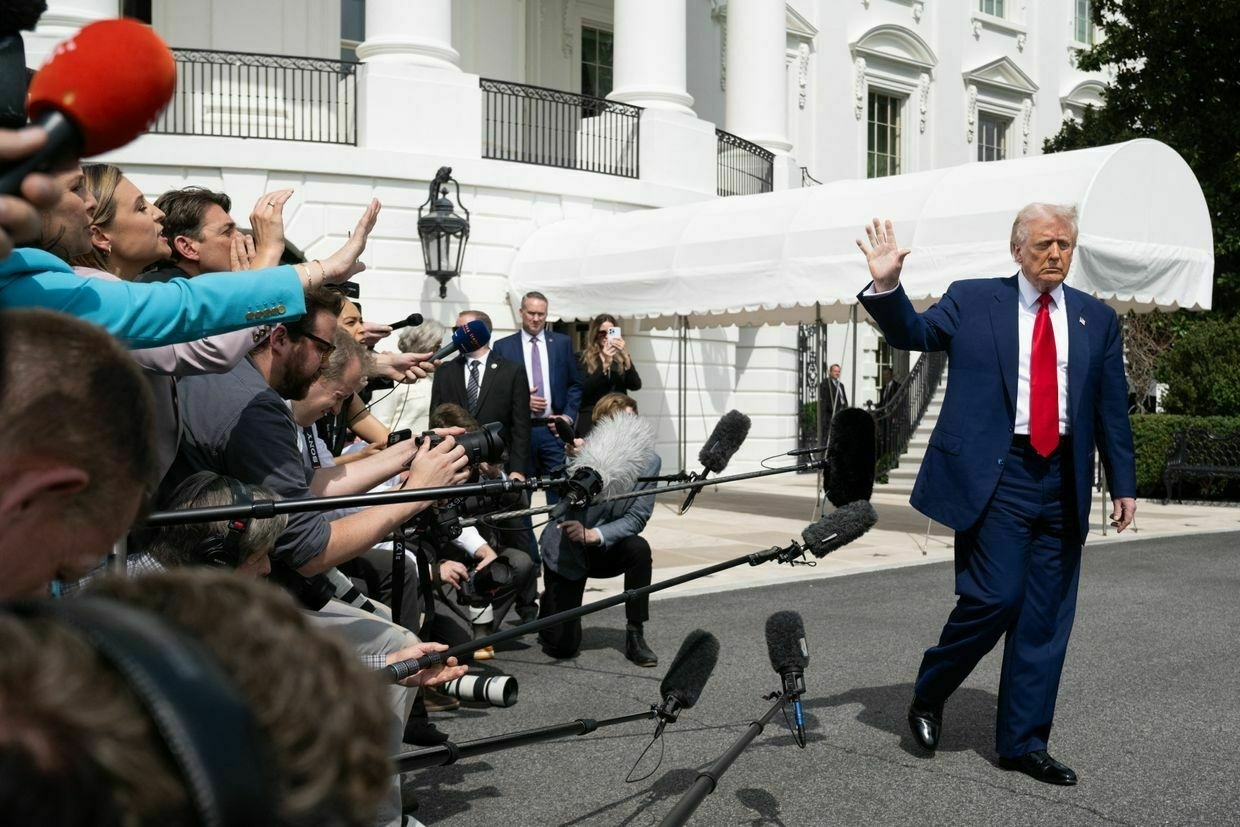
U.S. President Donald Trump speaks to the press as he departs from the South Lawn of the White House in Washington, D.C., on April 3, 2025. (Saul Loeb / AFP via Getty Images) The recent attacks by the Trump administration on Voice of America and RFE/RL, the ban on the Associated Press from covering Oval Office events, and continuous efforts to silence independent press and civil society voices signal that autocrats fear strong non-governmental institutions.
Civil society organizations have played a critical role in empowering Ukraine’s sovereignty since the collapse of the Soviet Union, especially in its resistance to authoritarianism and tyranny. Despite the ongoing war, it remains the freest and most democratic country in Eastern Europe. It’s impossible to imagine the resilience Ukrainians have shown in recent years without strong communities and journalists. This is vital.
Civic engagement is, in fact, a third line of defense for the country. With the risk of a broader war, it’s even more crucial to protect and strengthen civil society. So far, we are seeing the opposite. Cutting support now, in a time of increased risks, weakens Europe’s third line of defense.
One of the biggest lessons from this crisis should be that, until recently, Ukraine was seen and supported by American and European allies as a charity, not as a strategic partner and critical line of defense. Now, Europe is searching for ways to improve its own security. But without strong civil society institutions and an independent press, that will be impossible. It’s time to truly include Ukraine in strategic interests and build resilience together. Only then will we have a better chance of overcoming the enormous challenges we face globally.
Editor’s Note: The opinions expressed in the op-ed section are those of the authors and do not necessarily reflect the views of the Kyiv Independent.
Mineral diplomacy or modern-day extortion in Ukraine?Eleven years ago, Russia seized Ukrainian territory by force. Three years ago, Russia launched a full-scale invasion of Ukraine. Today, Ukraine faces a new threat to its sovereignty: U.S. President Donald Trump’s demand that the country hand over a significant amount of its mineral wealth or face th…The Kyiv IndependentAndrew Bogrand
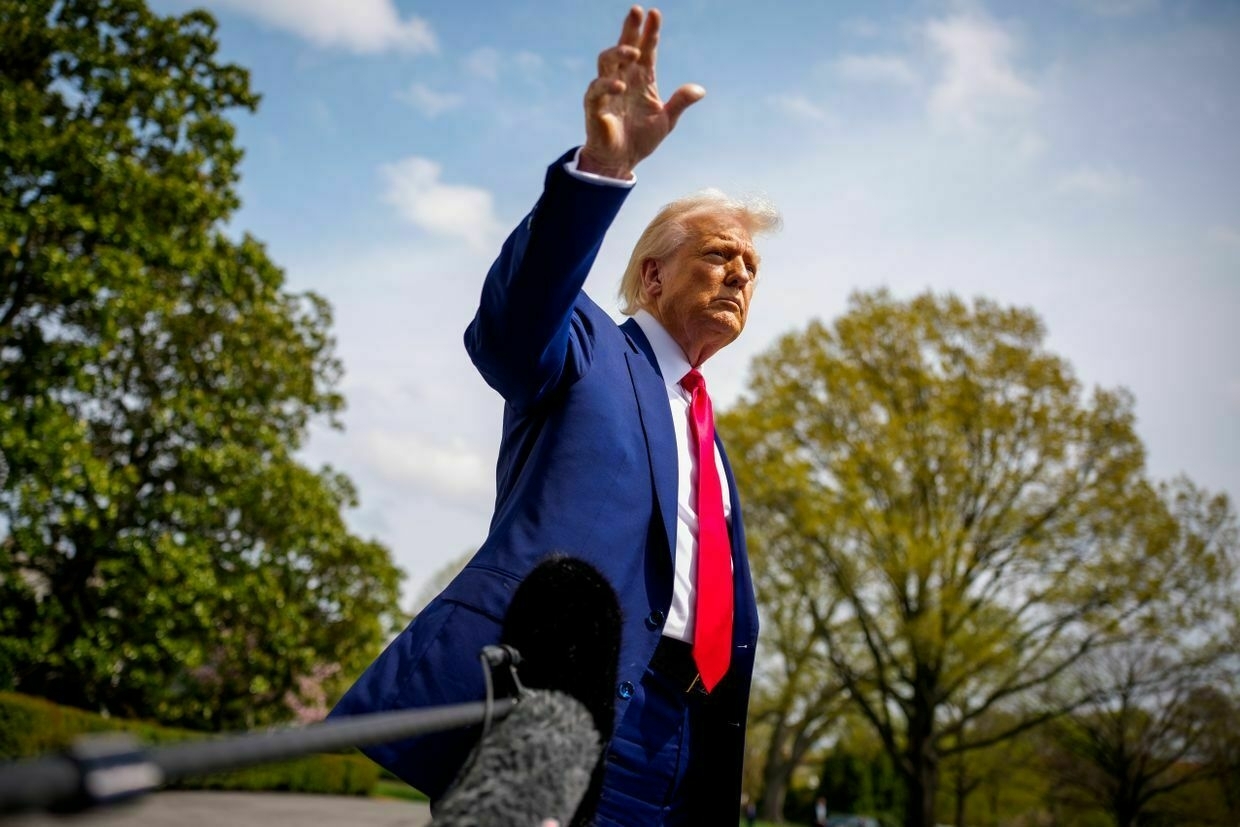
-
US’s only Ukrainian-born lawmaker says Ukraine should cede land to Russia, demand Zelensky's resignation

Victoria Spartz — the only Ukrainian-born member of the U.S. Congress — has said Ukraine should cede land to Russia, and its people should demand the resignation of President Volodymyr Zelensky.
In an interview with the Telegraph published on April 7, Spartz said Ukraine is not in a position to demand the return of all occupied territories. “If they were winning the war, that would be very different,” she added.
Spartz was born in Chernihiv Oblast and moved to the U.S. in 2000. Elected to Congress in 2021 and 2024, she initially supported U.S. aid for Ukraine and has often spoken about the war in personal terms.
However, she has also criticized the Ukrainian government, particularly Zelensky and his chief of staff, Andriy Yermak.
Spartz, who has been a critic of both the Biden administration and the Ukrainian government, supported U.S. President Donald Trump’s call to negotiate with Russian President Vladimir Putin.
“There are no easy solutions,” she said, placing blame on former President Joe Biden for what she sees as failed support.
“President Trump inherited it, so now he has to deal with it."
Commenting on the now infamous Oval Office clash between Trump and Zelensky, she accused the Ukrainian president of “insulting the American president” and doing a “disservice to the Ukrainian people."
Spartz went further, suggesting Ukrainians should vote Zelensky out of office in upcoming elections. “They will have an election, and then if they elect him, they’re going to lose the rest of the country,” she said.
On April 4, 2024, The Wall Street Journal reported that Spartz would not support a new $60 billion Ukraine aid bill. She articulated “a lack of clear strategy” and the need for better oversight.
Spartz also said she has “largely moved on from focusing heavily on Ukraine.” In October 2023, Spartz also backed fellow Republican Jim Jordan’s calls for more accountability in Ukraine funding and supported the idea of Ukraine aid being delivered in the form of a loan, as was floated by House Republicans.
In June 2024, Politico reported that Rep. Spartz was the subject of a preliminary investigation by the House Ethics Committee over accusations of mistreating her staff and creating a hostile work environment.
In an interview with Newsmax on March 24, Spartz described Trump as “a good negotiator,” contrasting him with Zelensky.
“To win wars, you need to have leaders who know how to win, not to try not to lose and become oligarchs themselves,” she said. Spartz also claimed Zelensky “took control of all Ukrainian media, prosecuted churches, businesses and volunteers."
-
Russia has found yet another excuse not to agree to a ceasefire in Ukraine, and it's not even a new one
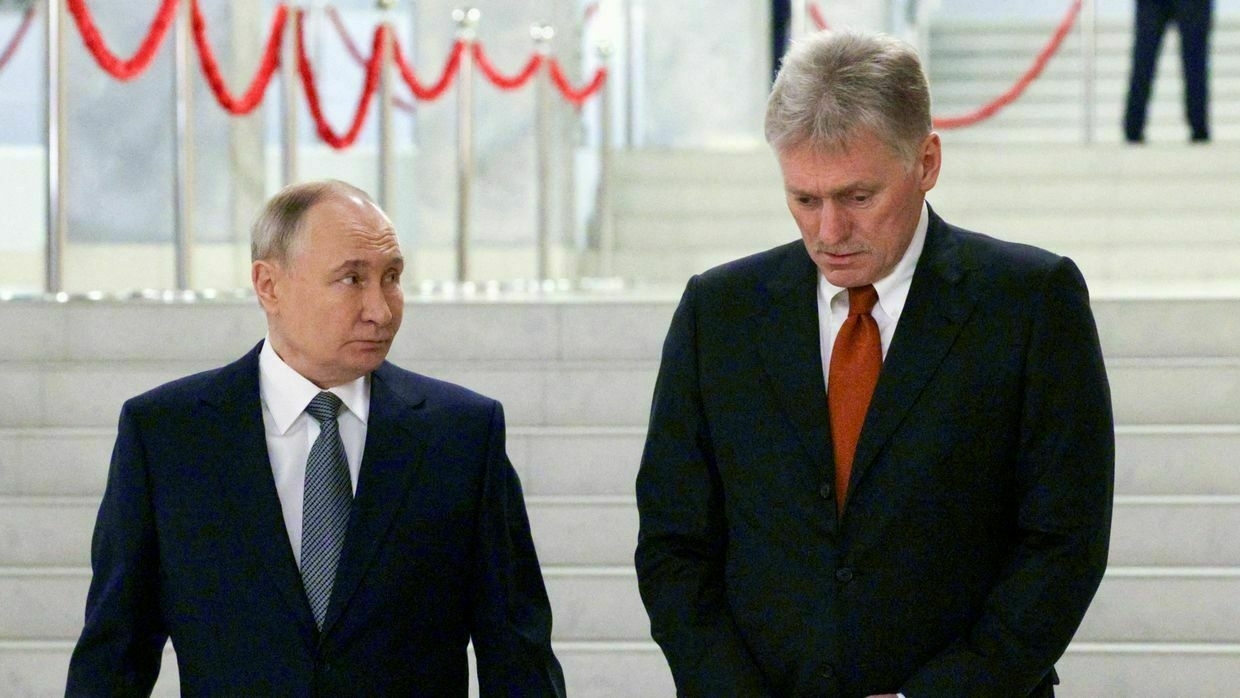
Russia’s now weeks-long refusal to agree to a full ceasefire in Ukraine continued on April 7, with the Kremlin falling back on debunked tropes about “extremist nationalists” in order to justify continuing the war.
Ukraine has already agreed to a U.S.-proposed full 30-day ceasefire, saying on March 11 that Kyiv is ready to take such a step if Russia also agrees to the terms.
So far, Russia has refused.
Kremlin spokesperson Dmitry Peskov insisted Russian President Vladimir Putin supports the idea of a ceasefire, but claimed before one could be reached “a whole series of questions have to be answered."
“These questions are hanging in the air, and so far, no one has given answers to them,” he added.
Peskov went on to explain that these relate “both to the lack of control over the Kyiv regime and to the inability of the Kyiv regime to control the actions of a number of extremist nationalist units that simply do not obey Kyiv."
Peskov’s comments echo longstanding false narratives aimed at undermining Ukraine’s government, and repeat Kremlin propaganda claims about the need to “denazify” and “demilitarize” Ukraine — terms Russia has used to justify its full-scale invasion since 2022.
Ukraine’s military is centrally commanded and subordinate to civilian leadership.
Western governments and international observers have consistently affirmed the professionalism of Ukraine’s armed forces.
Peskov also accused Kyiv of fueling “continued militarization” and said any ceasefire must address “our interests and clarify” unresolved concerns.
The remarks followed U.S. President Donald Trump’s renewed push for a ceasefire, which has regardless seen Russia repeatedly striking Ukrainian cities in drone and missile attacks.
A strike on the city of Kryvyi Rih on April 4 killed 20 people including nine children. An attack on Kyiv on April 6 killed one and injured three others. Trump has called on Russia to stop its bombing campaign, saying: “I don’t like the bombing."
Russia rejecting ceasefire because it wants to keep launching strikes from Black Sea, Zelensky saysPresident Volodymyr Zelensky said on April 6 that Russia is refusing to accept an unconditional ceasefire in order to keep launching missile strikes from the Black Sea.The Kyiv IndependentSonya Bandouil
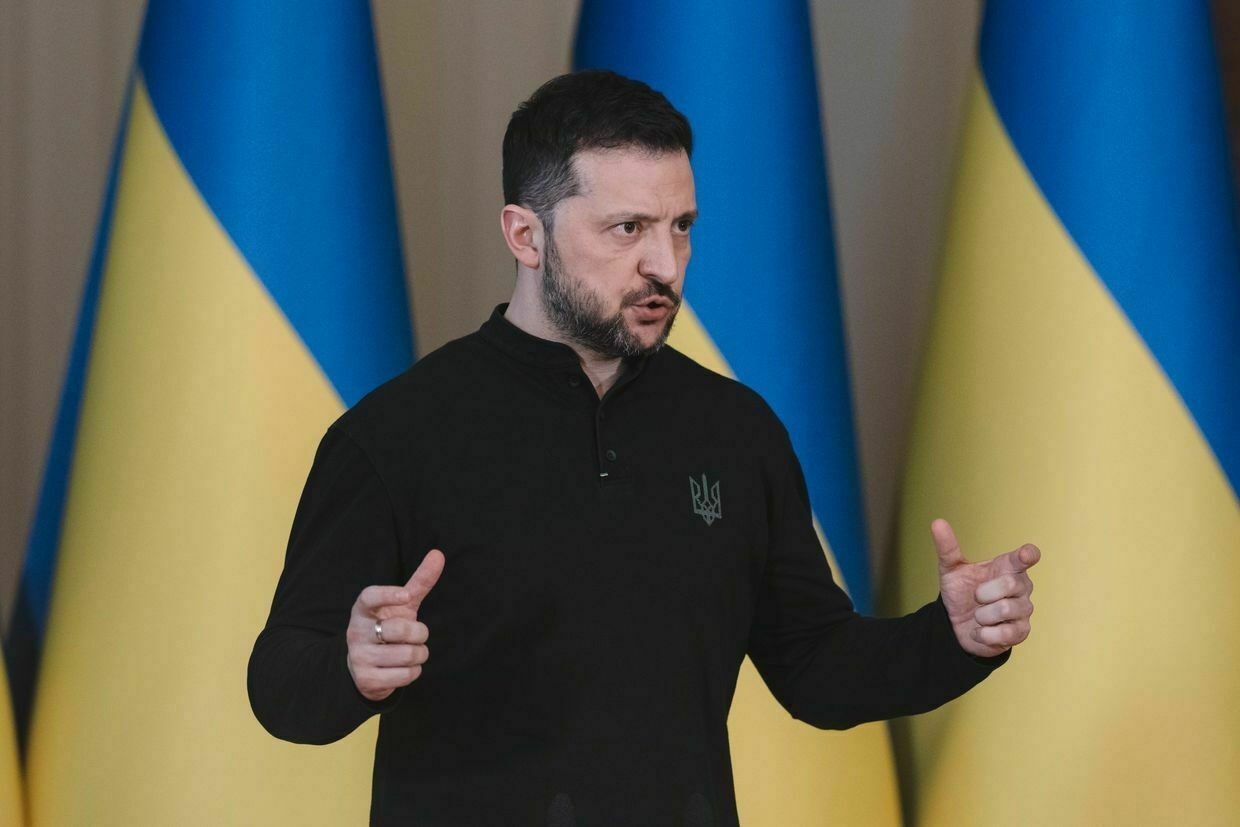
His comments came weeks after U.S.-mediated talks in Jeddah on March 11 led to a limited ceasefire agreement, covering energy infrastructure and the Black Sea.
Ukraine agreed to a full 30-day ceasefire in U.S.-mediated talks in Jeddah on March 11. Russia rejected the deal unless it included restrictions on Ukraine’s military, including the end of foreign military aid.
Two days later, Ukraine accused Russia of violating the deal by attacking Kherson’s energy facilities. Moscow denied responsibility, with Peskov saying Russia “reserves the right” to abandon the agreement if Ukraine fails to comply.
Moscow also claimed Ukraine struck the Sudzha gas metering station in Kursk Oblast — an allegation Kyiv dismissed as a pretext for further escalation.
Russian Foreign Minister Sergey Lavrov said on April 1 that Moscow submitted evidence of Ukrainian ceasefire violations to the U.S., the U.N., and OSCE.
President Volodymyr Zelensky instructed Defense Minister Rustem Umerov to provide counter-evidence to Washington. The U.S. has not commented publicly on either side’s claims.
NBC News reported on March 30 that Trump is “pissed off” at Russian President Vladimir Putin’s fixation on Zelensky, while the Telegraph wrote on March 23 that he is growing angry over Russia’s refusal to de-escalate.
Despite repeated threats of additional sanctions, Trump has yet to take concrete steps to pressure Moscow, which continues offensive operations against Ukraine.
As Russia refuses to accept ceasefire, will Trump pressure Moscow?Three weeks ago, Ukraine and the U.S. agreed to implement a full 30-day ceasefire. Russia declined to do so, issuing a list of demands instead. On April 4, Russia hit a residential neighborhood in the city of Kryvyi Rih with ballistic missiles and drones, killing 19 people, including nineThe Kyiv IndependentOleg Sukhov
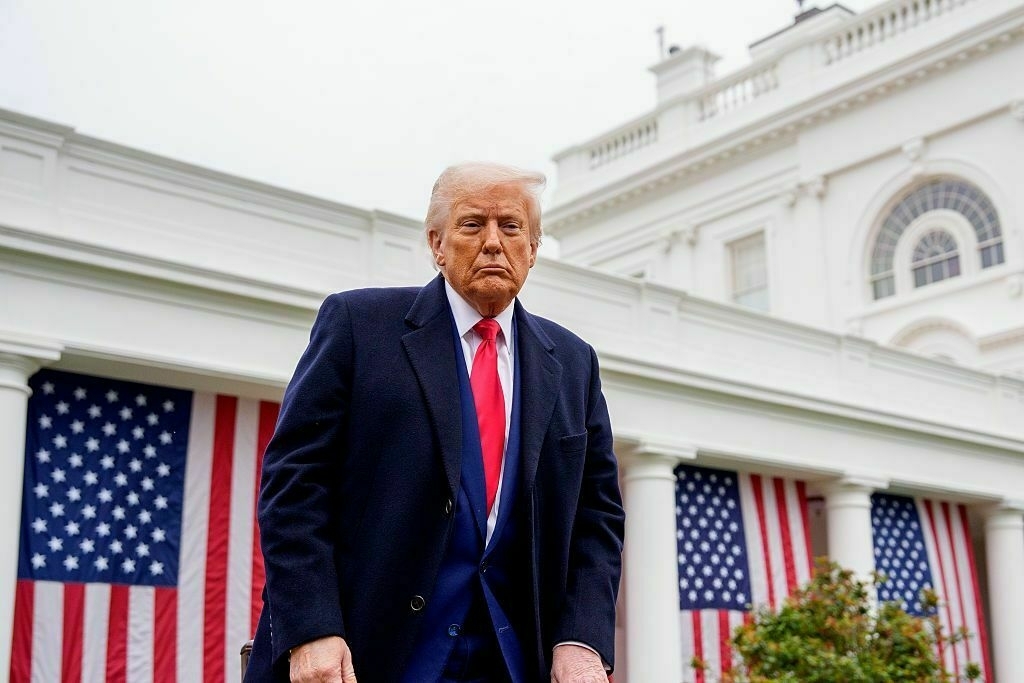
-
Mineral diplomacy or modern-day extortion in Ukraine?
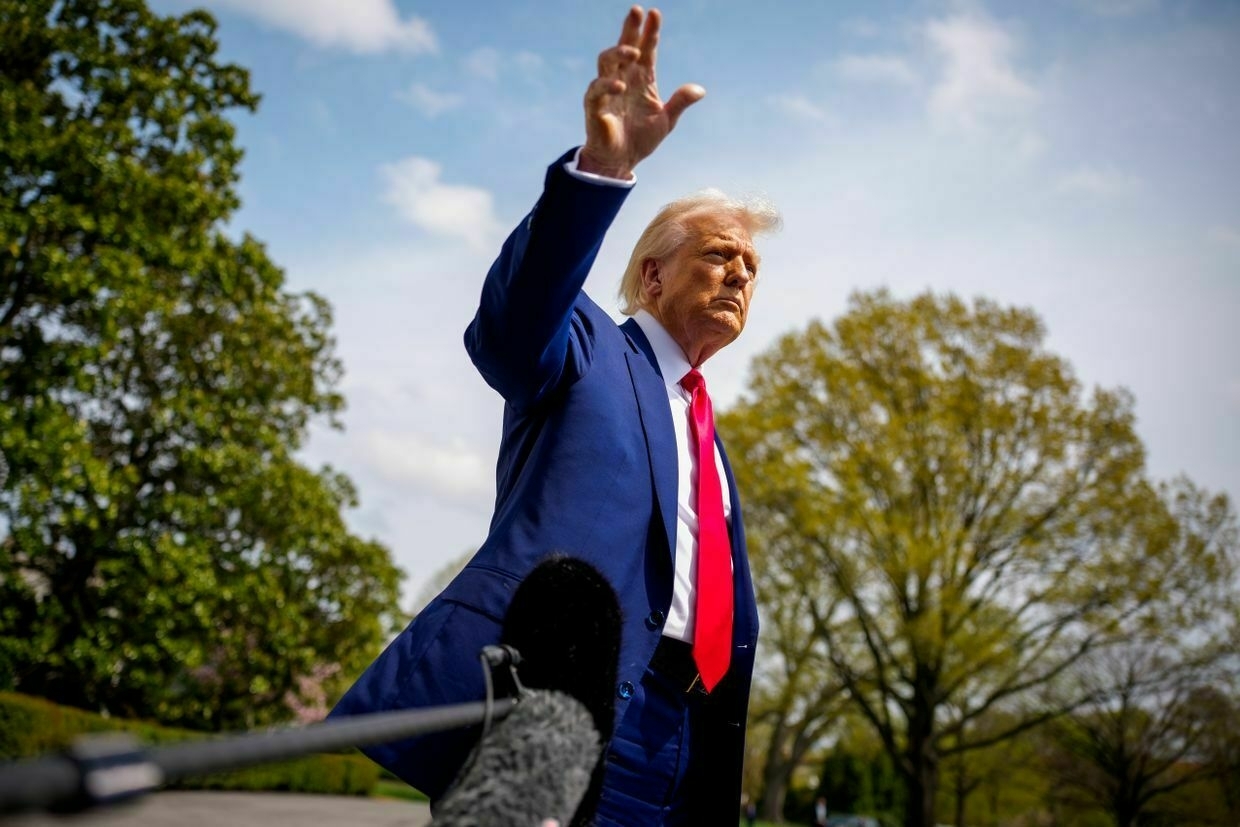
Eleven years ago, Russia seized Ukrainian territory by force. Three years ago, Russia launched a full-scale invasion of Ukraine. Today, Ukraine faces a new threat to its sovereignty: U.S. President Donald Trump’s demand that the country hand over a significant amount of its mineral wealth or face the prospect of future Russian intervention without American support.
The proposed “agreement” has been met with skepticism from mining experts, pushback from Kyiv, and even a counteroffer from the Kremlin. Staggeringly, this “very big deal” appears to have ignored the ambitions of the Ukrainian people altogether — and yet it has been met with bipartisan acclaim in the U.S.
Instead of creating an economic bond that would hold the two nations together, this mineral deal will be a fiasco for both Americans and Ukrainians. A deal made through coercion, rather than equitable negotiation with community consultation, will not only worsen Ukraine’s humanitarian emergency and long-term development efforts; it will also fail to strengthen America’s mineral supply chain.
Trump is correct that the U.S. will need critical minerals — including lithium, graphite, and rare earths — which will power the energy and security technology of the future. But through Oxfam’s decades of work in mining communities, we know firsthand that deals shaped without community consent are destined to fail. When people are unable to shape how (or if) mining proceeds in their backyards, companies and governments bear the cost of protests, work stoppages, and lawsuits.
Even in the best circumstances, mining deals routinely fall apart. In conflict zones like Ukraine, all bets are off. Mining is capital-intensive and often dangerous work. Land disputes are common, and even well-designed projects can undermine human rights activists, host communities, Indigenous groups, and local small-scale miners. Moreover, profits are by no means guaranteed, especially not in the short term: only 30%of Ukraine’s critical minerals are in operational mines. For the remainder, it will take an average of 18 years before production is possible.
Perhaps, given these constraints, the latest — “bigger, better” — version of Trump’s mineral deal encompasses other natural resources, including oil and gas. Still, the underlying problems will likely remain: a lack of consultation, let alone consent, and gun-barrel diplomacy is no way to secure a supply chain or recoup costs.
“Should the U.S. relationship with Ukraine veer toward “mineral colonialism” — shaped by subservience, arrogance, and domination without consideration for the Ukrainian people — neither side will win.”
Erik Prince, the military contractor and shadow adviser to Trump, proposed funding the war in Afghanistan through mining, which amounted to nothing. The Kremlin experimented with a mining-for-fighting model with the Wagner Group, which was disavowed after a coup attempt in Russia. In Ukraine, any unchecked rush to extract minerals without safeguards is all but certain to fail; worse, it is sure to exacerbate corruption and social conflict, further undermining the profitability of the private sector and the accountability of the state to its people. In short, it would demolish the foundations for a stable, prosperous Ukraine.
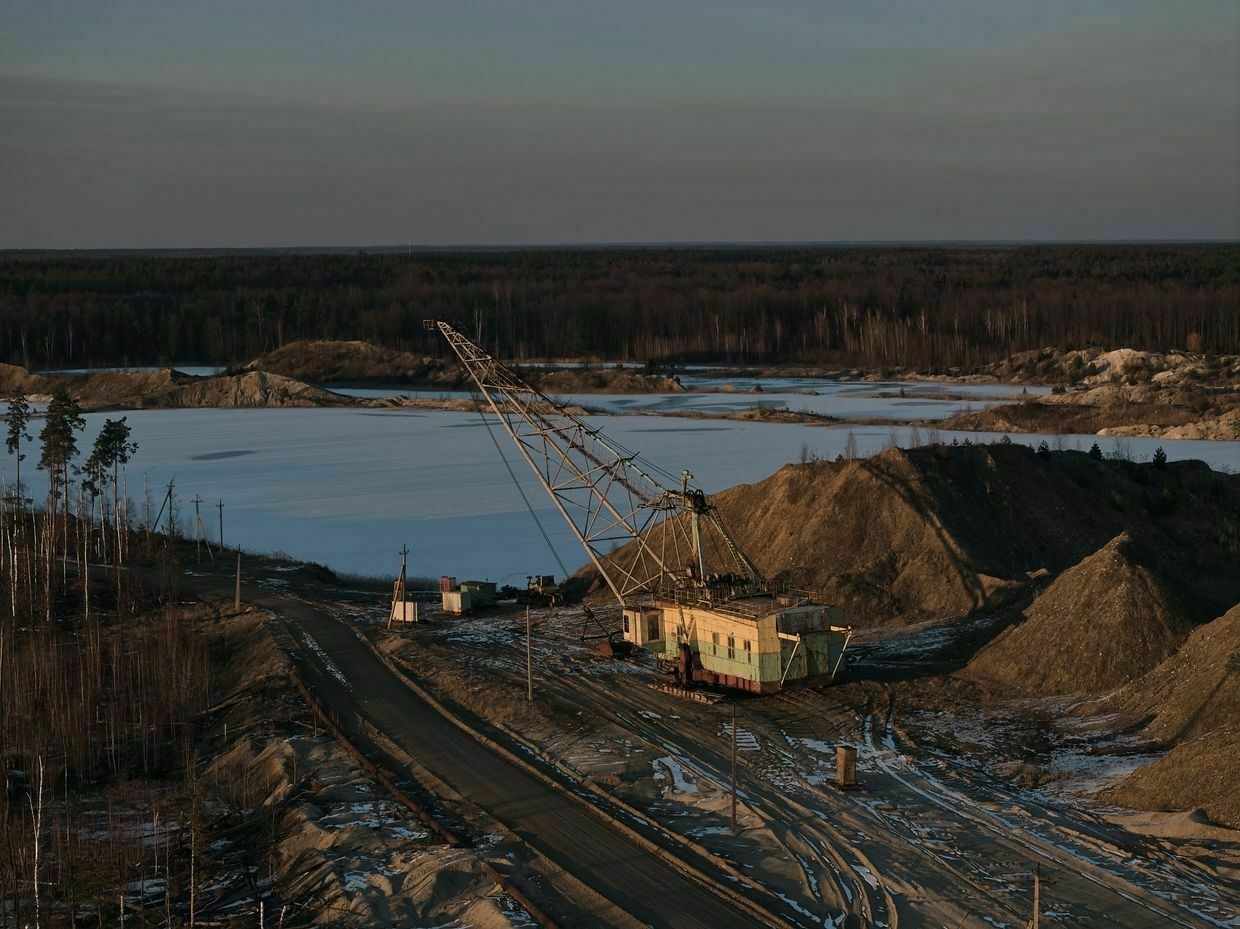
A drag-line excavator mines rare earth materials in Zhytomyr Oblast, Ukraine, on Feb. 25, 2025. (Kostiantyn Liberov / Libkos / Getty Images) There is a better way forward.
First, the U.S. and Ukrainian governments should be realistic about the short-term benefits of mining cooperation and appreciate that developing Ukraine’s natural resources is a years-long endeavor. It will not create the kind of short-term bond that Ukraine requires for its security. Rather, with an estimated $524 billion recovery bill, these resources would be better utilized as part of a long-term domestic fund for reconstruction and redevelopment. The Ukrainian government should reject any slapdash wealth transfer that might undermine its people’s immediate humanitarian needs and future political and economic success.
Second, the U.S. government should focus on building out a resilient mineral supply chain, which includes ensuring that local communities have a real say in whether and how mining projects move forward and investing in a more business-friendly environment. The mining industry itself, which has taken recent steps to improve its social performance and human rights commitments, should advocate for more rational policies in conflict-affected countries like Ukraine and reject this administration’s gutting of anti-corruption measures globally.
Lastly, and perhaps most importantly, policymakers should pursue a just and sustainable peace that recognizes Ukraine’s territorial integrity and ensures the safety of the Ukrainian people.
This latest round of “mineral diplomacy” reflects a new geopolitical reality that will be shaped by what lies beneath. Diplomacy, however, requires respect, engagement, and tact. Should the U.S. relationship with Ukraine veer toward “mineral colonialism” — shaped by subservience, arrogance, and domination without consideration for the Ukrainian people — neither side will win.
Editor’s Note: The opinions expressed in the op-ed section are those of the authors and do not necessarily reflect the views of the Kyiv Independent.
Can South Africa lead the charge for nuclear safety in Ukraine?Through the first half of March, the Truth Hounds team embarked on an advocacy trip to South Africa to discuss two major recent reports: one on the destruction of the Kakhovka dam and the international law protection of the environment during armed conflict, and another on the torture at theThe Kyiv IndependentDmytro Koval
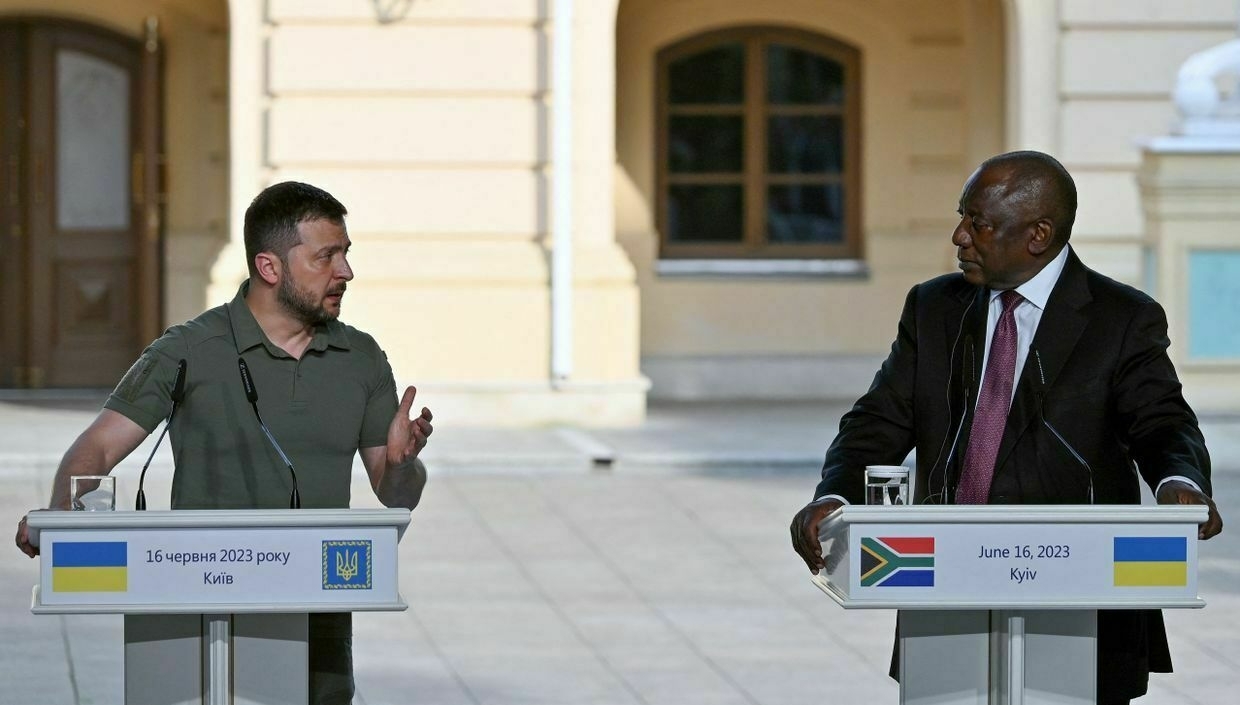
-
'Increasing brutality' reported as Poland-Belarus border crisis escalates
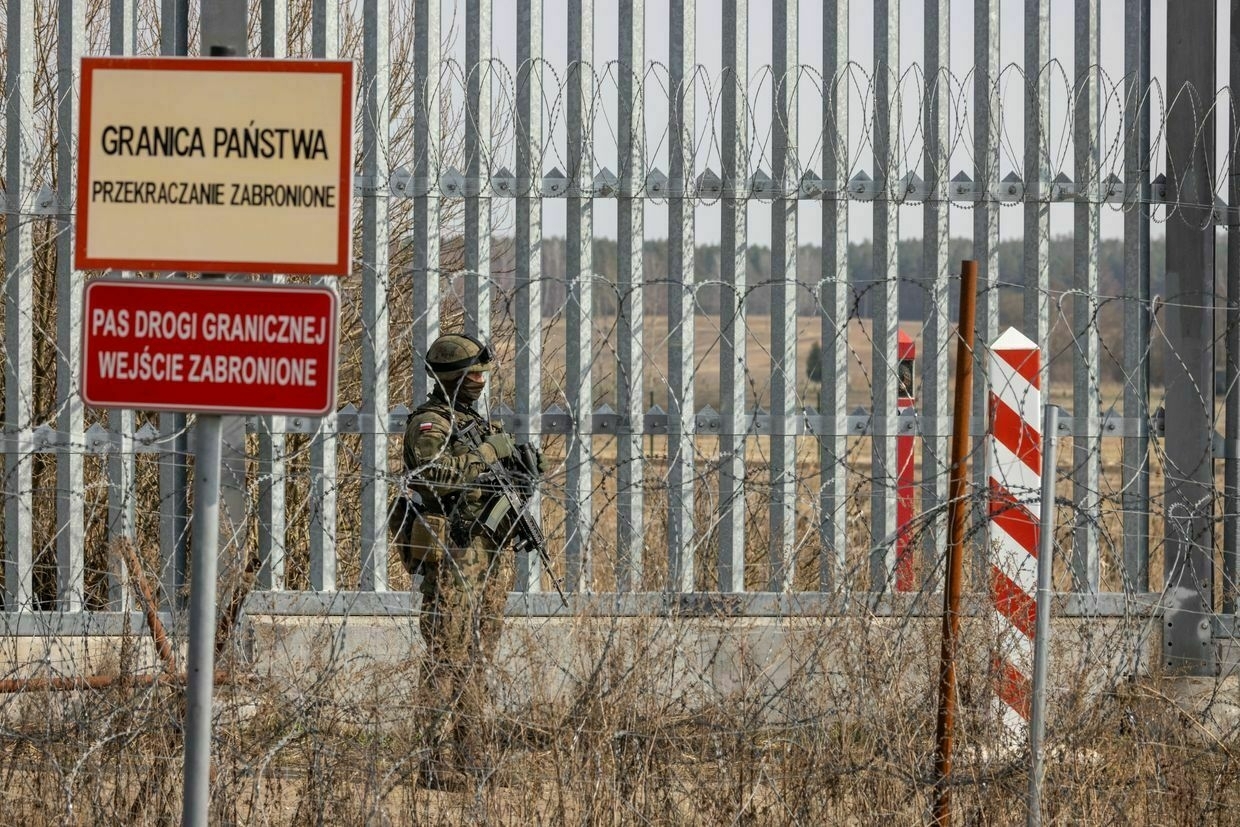
The migrant crisis on the Poland-Belarus border is escalating with “increasing brutality,” the Polish Border Guard and Polish media reported on April 5.
Tensions between Poland, a NATO country, and Russian ally Belarus have surged following Russia’s full-scale invasion of Ukraine.
Warsaw has also for several years accused Belarus of deliberately pushing migrants into Poland in order to pressure the EU over sanctions, a charge Belarus has denied.
Hundreds of illegal migrants, mainly from Sudan and Afghanistan, attempted to enter Poland illegally overnight on April 5, Polsat News reported, citing Polish Defense Minister Vladyslav Kosinyak-Kamysh.
“Tonight there were a lot of attempts to cross the border, probably about 300, all thwarted,” Kosinyak-Kamysh said in a statement to Polsat News.
“It is aimed at attacking Poland, not at trying to find shelter. To cross the border illegally is breaking the law,” he added.
While describing the situation on the border, Kosinyak-Kamysh said “the brutality is increasing,” as those crossing the border were throwing stones and branches, and using angle grinders to cut the barrier.
Belarus, led by dictator Alexander Lukashenko, has also provided extensive support to Moscow’s war in Ukraine and the Belarusian army regularly conducts military drills along its border with Poland and other EU countries.
Elsewhere in central Europe, the Latvian army has started digging an anti-tank ditch as part of the joint Baltic defense line along the country’s borders with Russia and Belarus, the Latvian public broadcaster LSM reported on May 2, 2024.
Meanwhile, on the Polish-German border, Polish border guards detained two Ukrainians helping migrants from Sudan and Afghanistan to cross the Poland-German border, the Polish Border Guard reported on April 4.
Since the beginning of the migration crisis in 2021, at least 740 Ukrainians assisting migrants to leave Poland have been detained.
As Russia refuses to accept ceasefire, will Trump pressure Moscow?Three weeks ago, Ukraine and the U.S. agreed to implement a full 30-day ceasefire. Russia declined to do so, issuing a list of demands instead. On April 4, Russia hit a residential neighborhood in the city of Kryvyi Rih with ballistic missiles and drones, killing 19 people, including nineThe Kyiv IndependentOleg Sukhov
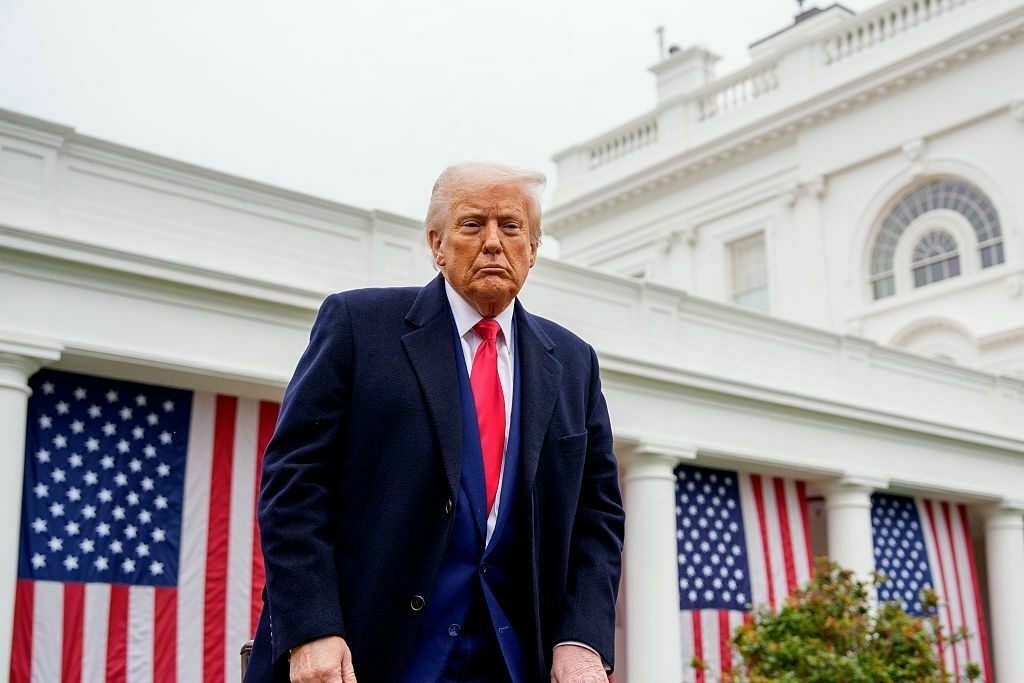
-
Russian forces push to secure ground west of Oskil River in Kupiansk sector, Ukraine says
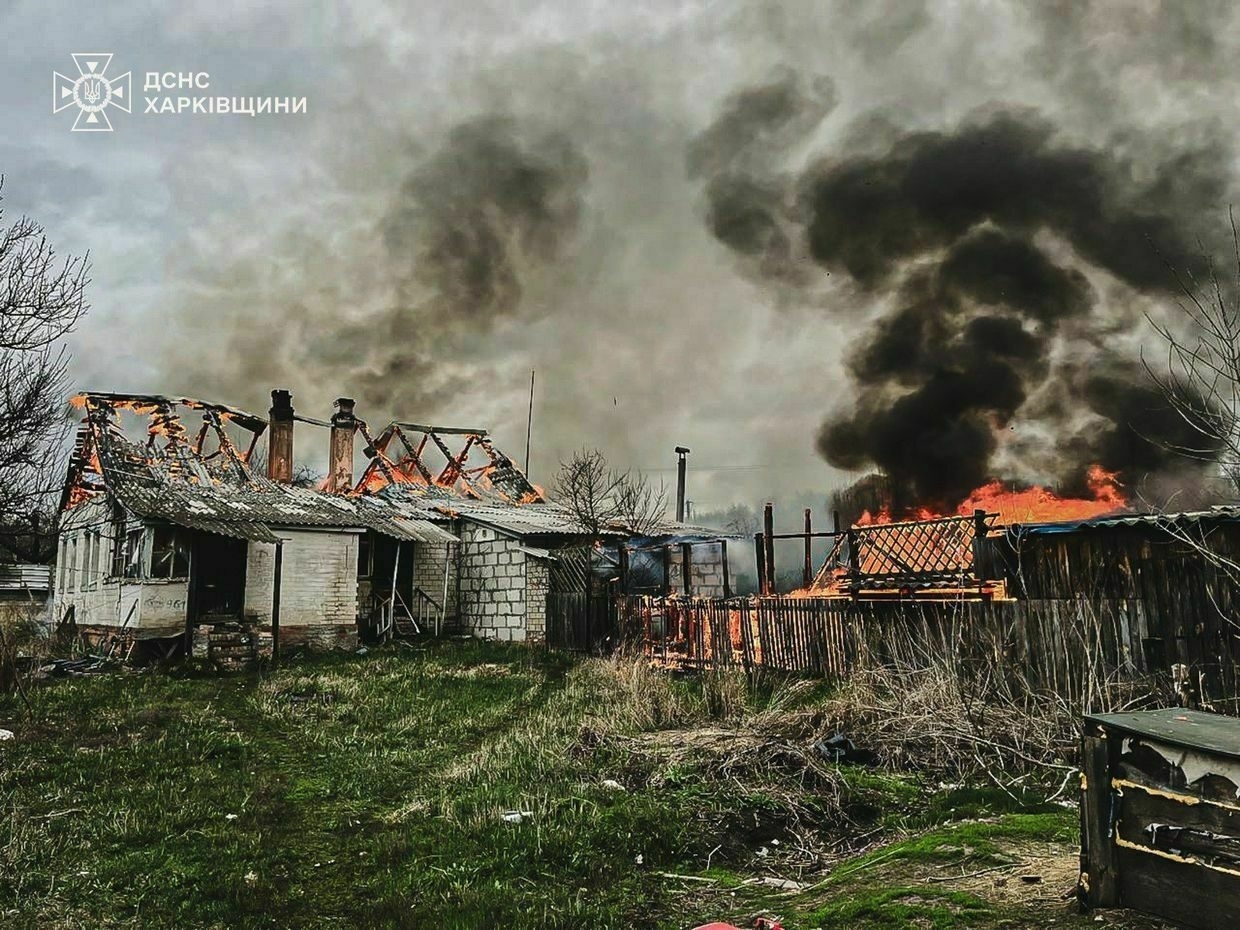
Russian troops are stepping up efforts to gain territory on the western bank of the Oskil River, launching intensified assaults in the Kupiansk direction, Kharkiv Oblast, Ukraine’s military said April 7.
Kupiansk has remained a focal point of military activity for months, with Russia seeking to reclaim lost ground and create more favorable conditions for broader offensives in Kharkiv Oblast.
President Volodymyr Zelensky warned in an interview with Le Figaro published on March 26 that Russia is preparing for a new offensive in Sumy and Kharkiv oblasts this spring.
According to the Operational and Strategic Group of Troops “Khortytsia,” Ukrainian forces repelled multiple infantry attacks near the villages of Kamianka, Petropavlivka, Pishchane, Nadiia and Zahryzove.
In the area around the village of Bohuslavka, Russian units — backed by armored vehicles and quad bikes — attempted to break through Ukrainian defensive lines, the military said.
Russian forces are reportedly trying to transfer additional manpower and supplies across the Oskil River, aiming to strengthen their position on the western side and secure logistics routes for future operations. Ukraine’s military says efforts to prevent this crossing remain a priority.
“Our troops are taking active measures to prevent further advances by enemy forces,” the command reported.
In March, Ukrainian forces recaptured territory near the village of Dvorichna, about 10 miles north of Kupiansk. Officials say Russian attempts to cross the river have been costly, with some units entrenched in small groups but unable to gain firm control.
Ukraine has also accused Russian commanders of using threats of execution to force troops to retake lost positions near Kupiansk, citing intelligence reports.
The front line remains just a few kilometers from the city.
As Russia refuses to accept ceasefire, will Trump pressure Moscow?Three weeks ago, Ukraine and the U.S. agreed to implement a full 30-day ceasefire. Russia declined to do so, issuing a list of demands instead. On April 4, Russia hit a residential neighborhood in the city of Kryvyi Rih with ballistic missiles and drones, killing 19 people, including nineThe Kyiv IndependentOleg Sukhov
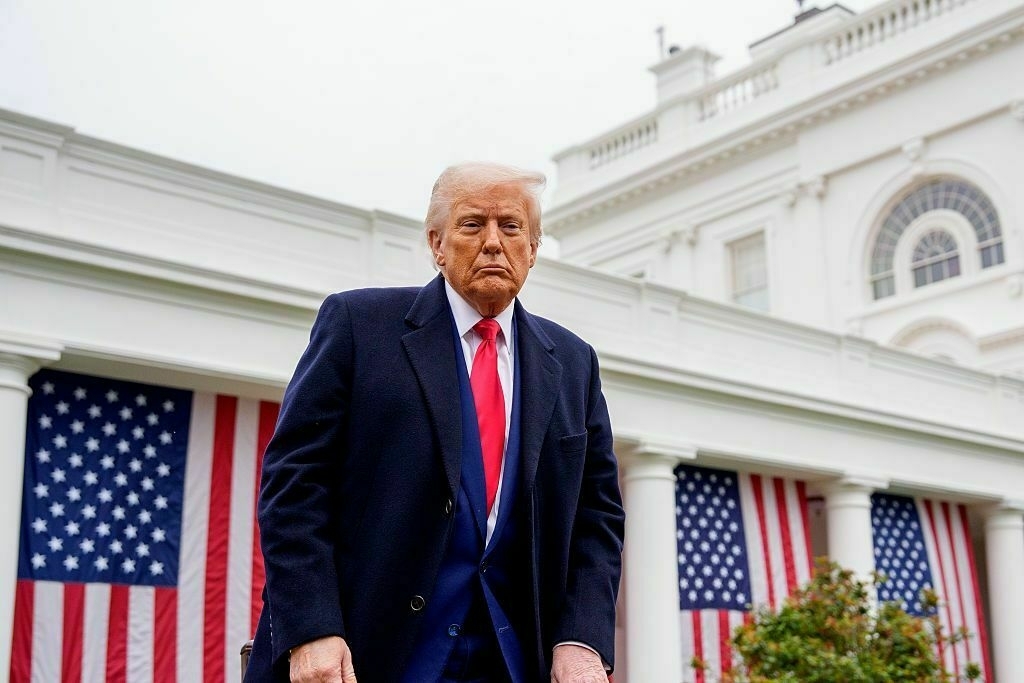
-
Eutelsat can't match Starlink's scale in Ukraine, CEO admits

Ukraine has no viable alternative to Elon Musk’s Starlink network for secure satellite communications, Eutelsat CEO Eva Berneke told Politico on April 7, despite ongoing efforts to build up alternative capacity.
Berneke acknowledged that Eutelsat — a French satellite operator providing limited service to Ukraine through a German government-funded distributor — cannot yet match Starlink’s scale.
“If we were to take over the entire connectivity capacity for Ukraine and all the citizens, — we wouldn’t be able to do that. Let’s just be very honest,” she said.
While Eutelsat’s OneWeb network has begun supporting Ukrainian government operations with fewer than 1,000 active terminals, the company aims to scale up to 5,000–10,000 units.
This remains far behind the estimated 50,000 Starlink terminals active across Ukraine, serving military, medical, and civilian sectors.
Berneke also raised concerns over the geopolitical risks of relying on a single private provider. “Working with Starlink is a dependence that can be decided in the White House or Mar-a-Lago,” she said, referencing U.S. President Donald Trump’s residence.
Those concerns have grown amid reports that Washington may use Starlink access as leverage. In February, Reuters reported the U.S. had threatened to cut the service unless Ukraine signed a critical minerals deal.
Tech billionaire and SpaceX CEO Elon Musk denied these claims, and on March 9, he claimed that cutting Ukraine off from Starlink would cause the country’s entire front line to collapse.
Uncertainty deepened following a Feb. 28 meeting between Trump and President Volodymyr Zelensky, which led to a temporary halt in U.S. aid and intelligence sharing while the White House pushed Kyiv toward negotiations with Moscow.
Eutelsat was in talks with the European Union on potentially expanding its services to reduce Ukraine’s dependence on Musk’s network, Bloomberg reported on March 6.
The company’s hybrid satellite approach, combining low Earth orbit and geostationary satellites, could support military operations, including drone attacks, if scaled.
US increasingly polarized over Ukraine support as Trump’s ‘America First’ deepens party divideThe data also showed broader disagreement over America’s global role.The Kyiv IndependentTim Zadorozhnyy
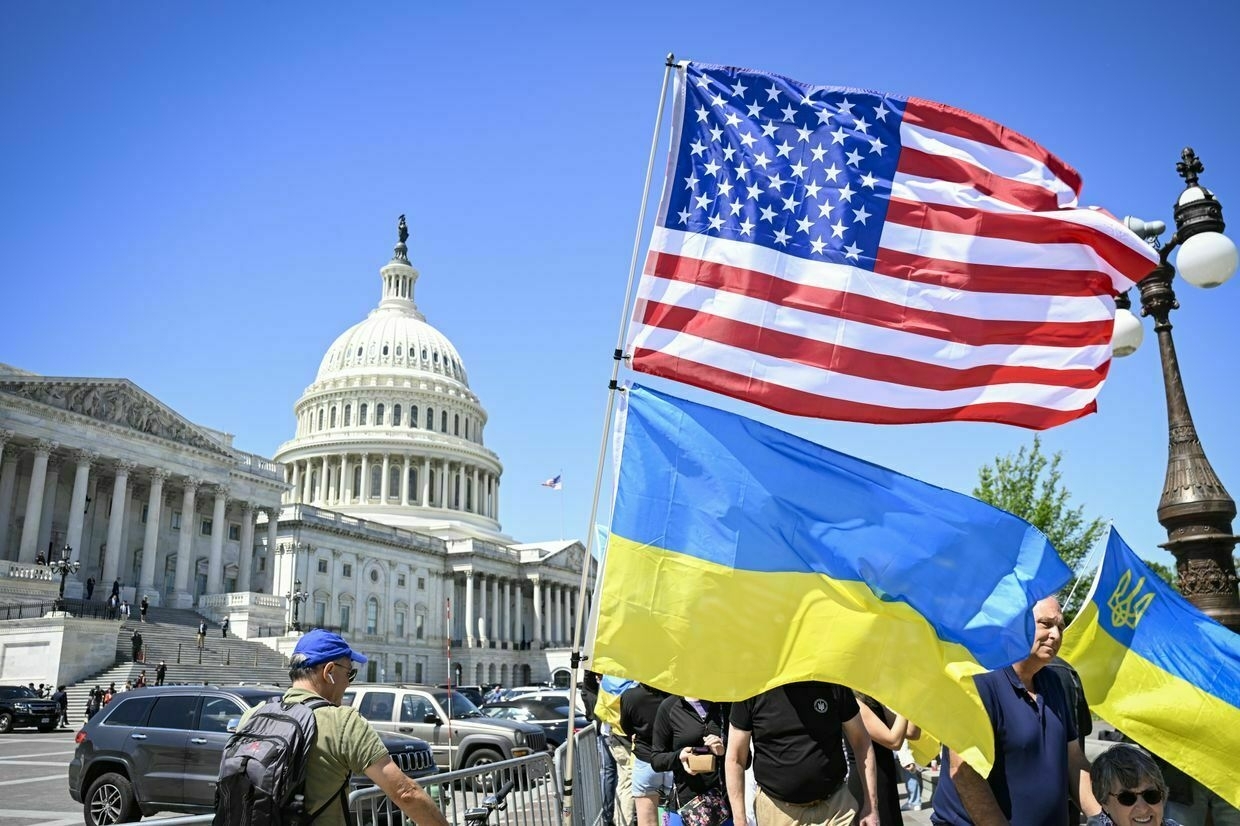
-
US increasingly polarized over Ukraine support as Trump's 'America First' deepens party divide
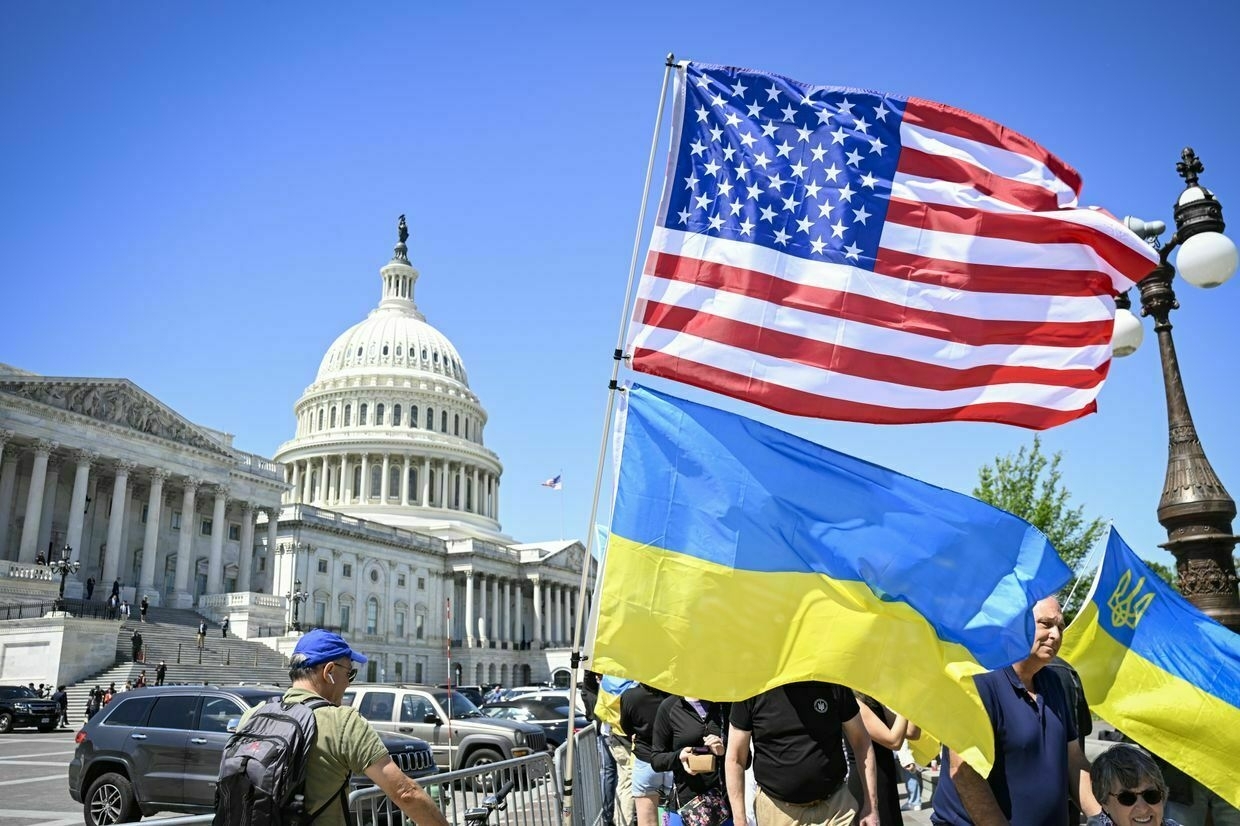
Republican voters are increasingly opposed to sending military aid to Ukraine, according to a Wall Street Journal poll published April 6, highlighting a growing divide in the U.S. along party lines.
The poll found 83% of Democratic voters support continued U.S. financial aid to Ukraine, compared to 79% of Republicans who oppose it. Among all voters surveyed, 49% favored continued assistance to Kyiv, while 44% were against it.
Throughout 2023 and into 2024, Democrats became more supportive of increasing aid to Kyiv, while Republican sentiment shifted in the opposite direction, with many saying the U.S. was already doing too much.
The data also showed broader disagreement over America’s global role. Some 81% of Republican respondents said U.S. allies are not doing enough to defend themselves and that Washington should stop spending taxpayer money to protect them.
In contrast, 83% of Democrats said international alliances are a strength and deserve financial support.
The gap reflects years of growing Republican skepticism toward global engagement, influenced by President Donald Trump’s “America First” doctrine. Trump has repeatedly criticized NATO allies for low defense spending and questioned the value of U.S. security commitments abroad.
Trump has long demanded that NATO allies increase their military spending. He previously called for the alliance to raise its benchmark from 2% to 5% of the GDP.
During a Feb. 28 meeting with President Volodymyr Zelensky in Washington, Trump said security guarantees for Ukraine should be Europe’s responsibility and cast himself as a neutral figure in the war, offering to mediate between Kyiv and Moscow.
Trump’s stance underscores a broader shift from traditional American leadership in global affairs toward an inward-focused foreign policy platform that resonates with many in the Republican base.
The Wall Street Journal conducted the poll by phone from March 27 through April 1, surveying 1,500 registered voters, with some respondents contacted via text to complete the survey online.
‘I don’t like the bombing’ — Trump responds to Russia-Ukraine peace talks question“We are talking to Russia. We would like them to stop,” Trump told reporters on April 6. His comments came after President Volodymyr Zelensky renewed his plea for a decisive response from the U.S. following Russia’s continuous attacks against Ukraine.The Kyiv IndependentOlena Goncharova
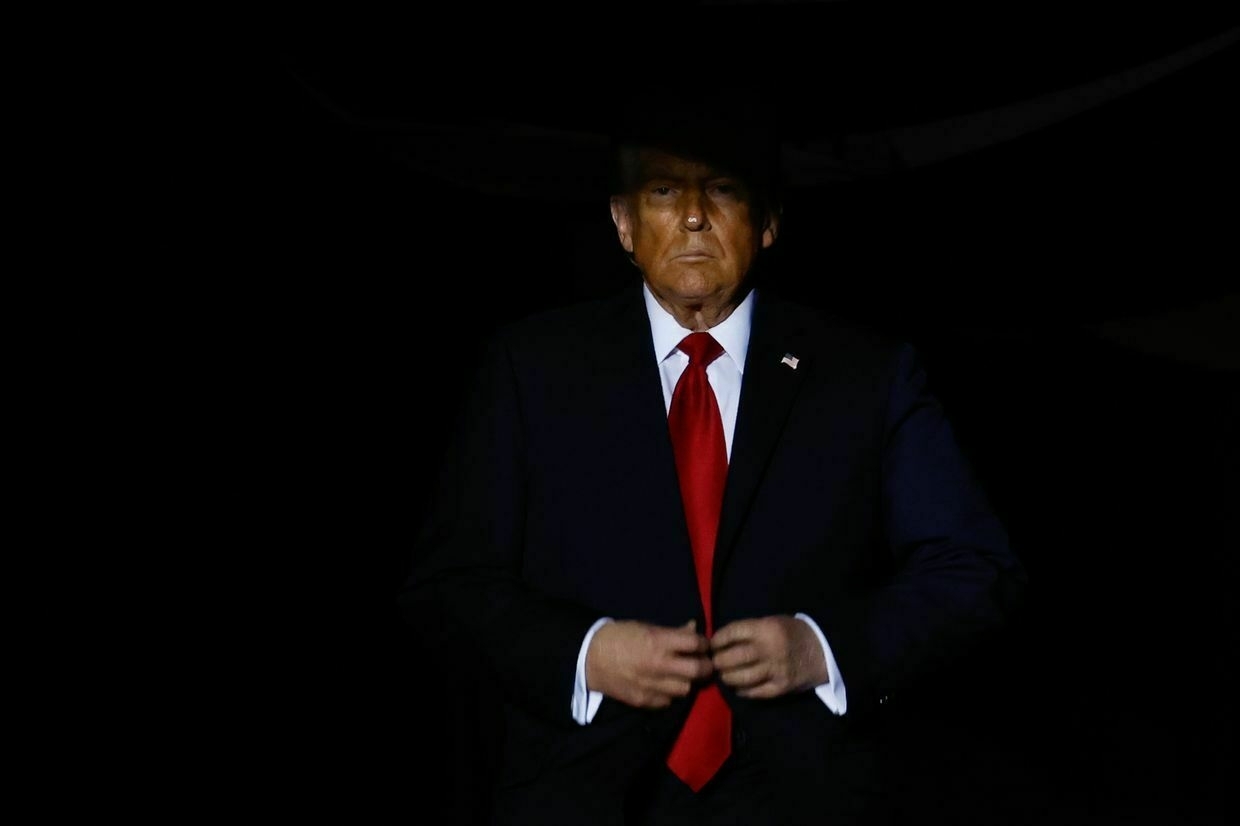
-
Russia's continued strikes on Ukraine show it seeks 'further war, not peace,' Poland says
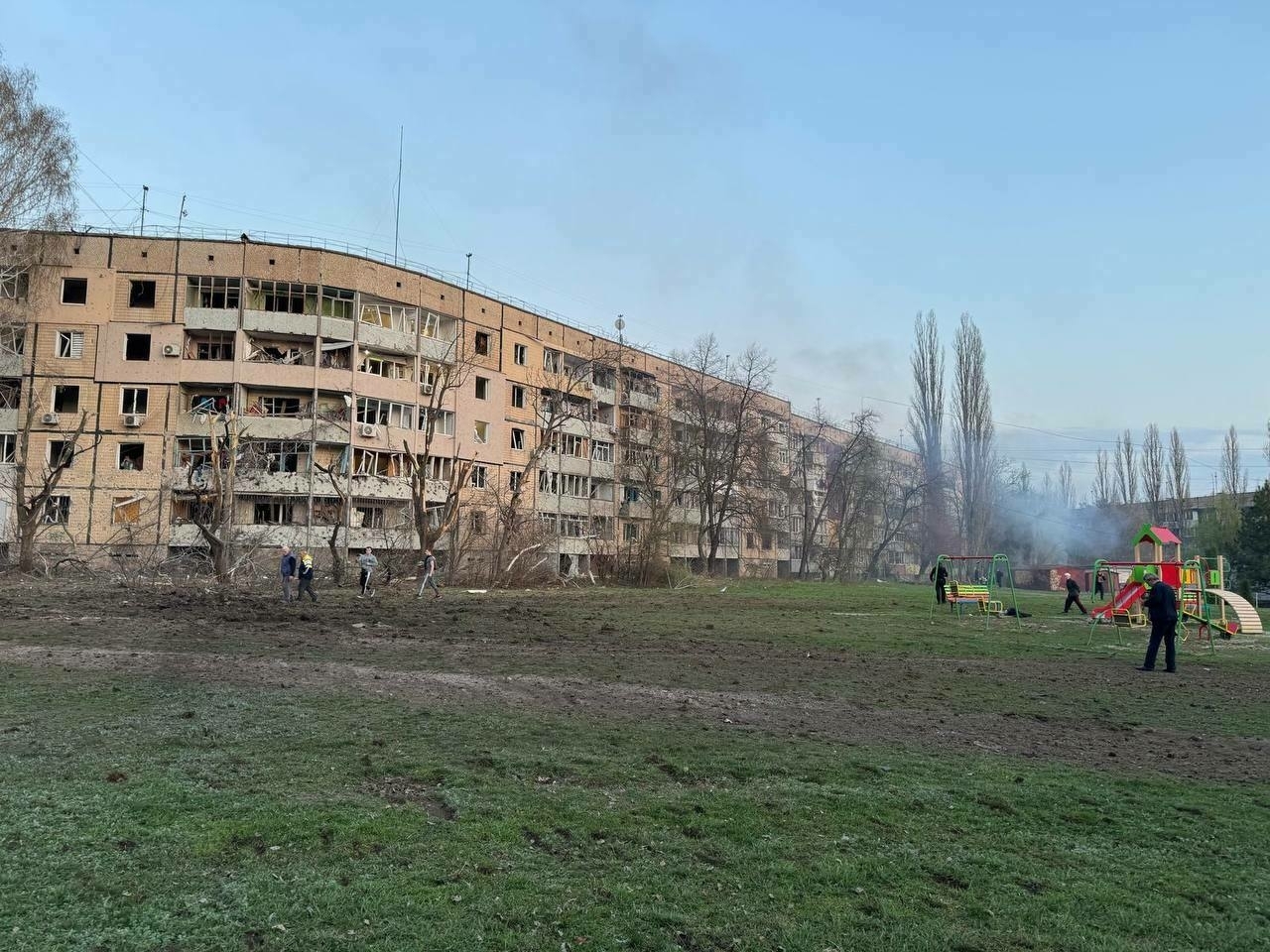
Poland has condemned Russia’s continued strikes on Ukrainian cities, saying that Moscow’s actions prove it seeks “further war, not peace,” the Polish Foreign Ministry said in a statement on April 6.
"Poland strongly condemns further Russian attacks on Ukraine. Russia must be held accountable for the deaths of Ukrainian citizens and the destruction of civilian infrastructure," the ministry posted on X.
“Moscow’s recent actions show that its goal is further war, not peace,” it added.
The statement follows Russia’s missile strike on Kryvyi Rih on April 4, which killed 20 people, including nine children, in President Volodymyr Zelensky’s hometown. On Sunday morning, a Russian ballistic missile attack on Kyiv killed one person and injured three others.
The attacks came weeks after Ukraine agreed to a full 30-day ceasefire in U.S.-mediated talks in Jeddah on March 11. Russia rejected the deal unless it included restrictions on Ukraine’s military, including the end of foreign military aid.
Instead, a limited ceasefire was reached covering energy infrastructure and the Black Sea.
Two days later, Ukraine accused Russia of violating the deal by attacking Kherson’s energy facilities. Moscow denied responsibility, with Kremlin spokesperson Dmitry Peskov saying Russia “reserves the right” to abandon the agreement if Ukraine fails to comply.
Russia also accused Ukraine of striking the Sudzha gas metering station in Kursk Oblast, a claim Kyiv dismissed as an attempt to justify further attacks.
Russian Foreign Minister Sergey Lavrov said on April 1 that Moscow submitted evidence of Ukrainian ceasefire violations to the U.S., the U.N., and OSCE.
Zelensky also ordered Defense Minister Rustem Umerov to provide the U.S. with proof of Russian violations. Washington has not commented publicly on either side’s accusations.
U.S. President Donald Trump, who mediated the talks, is reportedly frustrated with the ongoing attacks.
NBC News reported on March 30 that Trump is “pissed off” at Russian President Vladimir Putin’s fixation on Zelensky, while the Telegraph wrote on March 23 that he is growing angry over Russia’s refusal to de-escalate.
On April 6, he reiterated his call for a ceasefire in the Russia-Ukraine war, urging Putin to stop the violence.
“We are talking to Russia. We would like them to stop,” Trump told reporters onboard Air Force One. “I don’t like the bombing, the bombing goes on and on, and every week thousands of young people being killed."
Despite repeated threats of additional sanctions, Trump has yet to take concrete steps to pressure Moscow, which continues offensive operations across Ukraine.
Russia claims capture of Sumy Oblast border village, Ukraine calls it ‘disinformation campaign’Basivka remains marked as a “gray zone” on the DeepState monitoring map, indicating contested or unclear control.The Kyiv IndependentTim Zadorozhnyy

-
Russia claims capture of Sumy Oblast border village, Ukraine calls it 'disinformation campaign'

Russia claimed on March 6 that its forces had seized the village of Basivka in Sumy Oblast, but Ukraine’s State Border Guard Service denied the report, describing it as part of a “disinformation campaign."
The Russian Defense Ministry said units from its “Sever” (North) military grouping captured the settlement, located roughly 29 kilometers northeast of Sumy city and near the Russian border.
Russia’s state-run news agency TASS reported the seizure could disrupt supply lines to Ukrainian forces still operating in Russia’s Kursk Oblast.
Ukrainian officials rejected the claim. “Russia continues its disinformation campaign regarding the seizure of settlements in Sumy Oblast or the breakthrough of the border,” border guard spokesperson Andrii Demchenko told Ukrainian Pravda.
Demchenko confirmed ongoing Russian attempts to send small assault groups across the border in the Novenke-Basivka direction, but said these groups are being “destroyed to the maximum extent possible” by Ukraine’s Defense Forces.
Basivka remains marked as a “gray zone” on the DeepState monitoring map, indicating contested or unclear control.
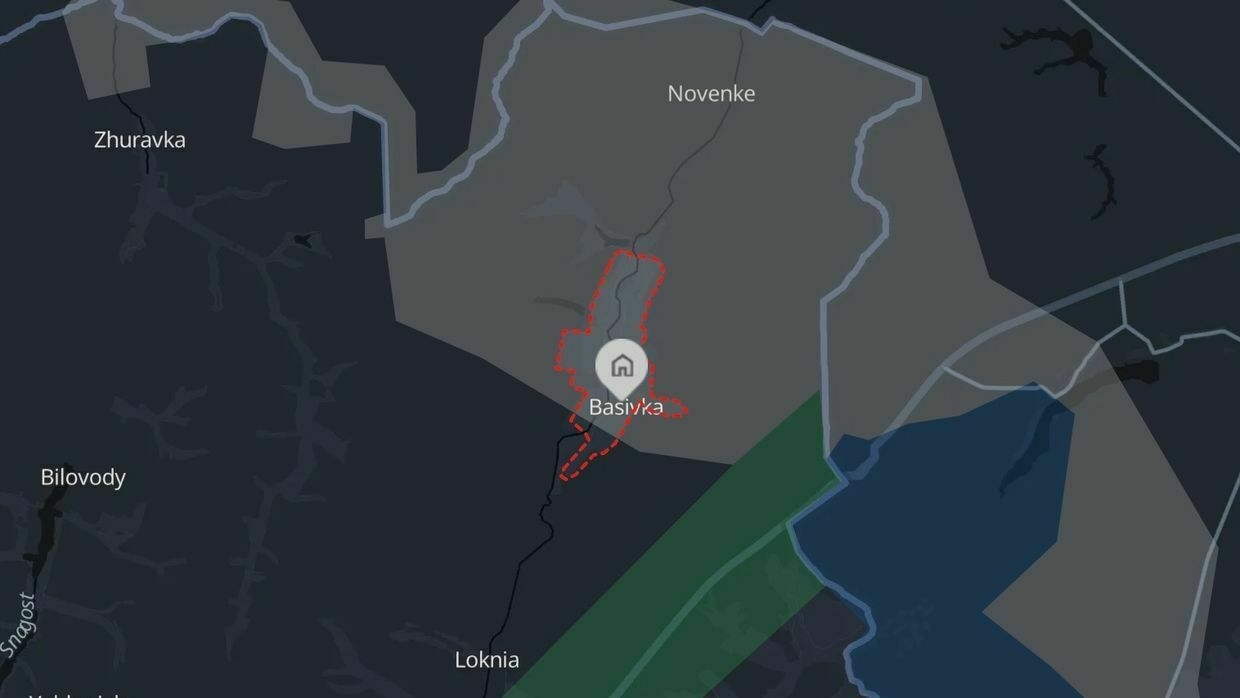
The estimated Russian advance in the Sumy Oblast, Ukraine, as of April 7, 2025, according to DeepState map. A white symbol marks the village of Basivka. (DeepState / OpenStreetMaps) President Volodymyr Zelensky warned in a March 26 interview with Le Figaro that Russia is preparing a new offensive in Sumy and Kharkiv oblasts this spring. Both border regions have been critical to Ukraine’s defense since Russia launched its full-scale invasion in 2022.
While Russian advances have largely stalled in Donetsk Oblast, particularly around Pokrovsk, Ukraine has lost ground in Russia’s Kursk Oblast.
According to DeepState, Ukraine’s controlled area shrank from 407 square kilometers in early March to just 70 square kilometers by month’s end.
Ukraine initially seized 1,300 square kilometers before Russian forces — reinforced by North Korean units — launched a counteroffensive.
As Russia refuses to accept ceasefire, will Trump pressure Moscow?Three weeks ago, Ukraine and the U.S. agreed to implement a full 30-day ceasefire. Russia declined to do so, issuing a list of demands instead. On April 4, Russia hit a residential neighborhood in the city of Kryvyi Rih with ballistic missiles and drones, killing 19 people, including nineThe Kyiv IndependentOleg Sukhov
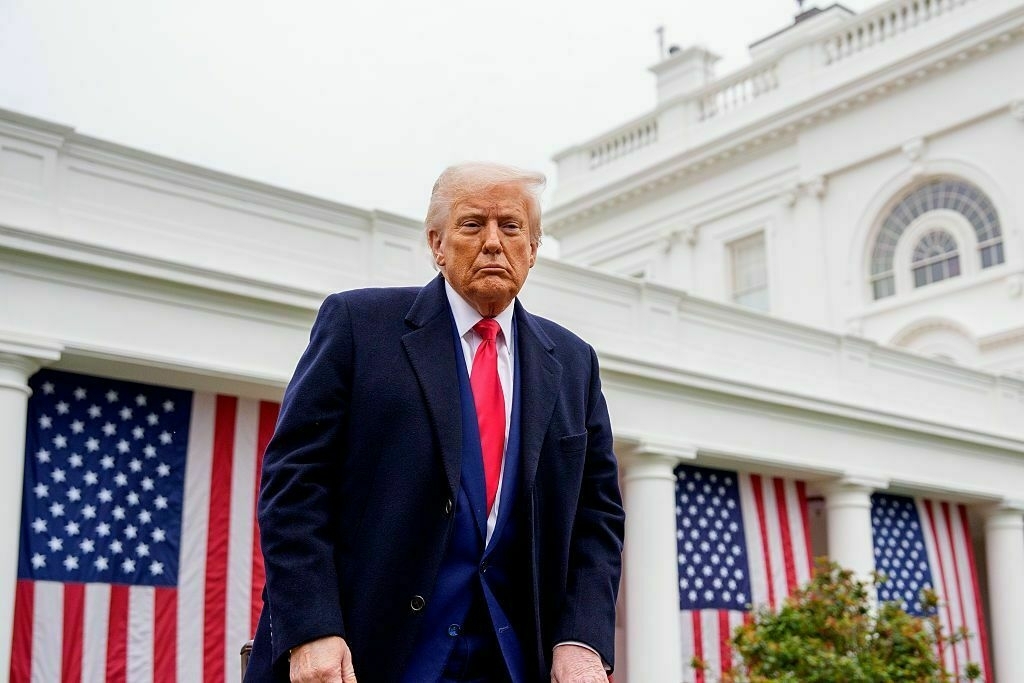
-
General Staff: Russia has lost 925,020 troops in Ukraine since Feb. 24, 2022
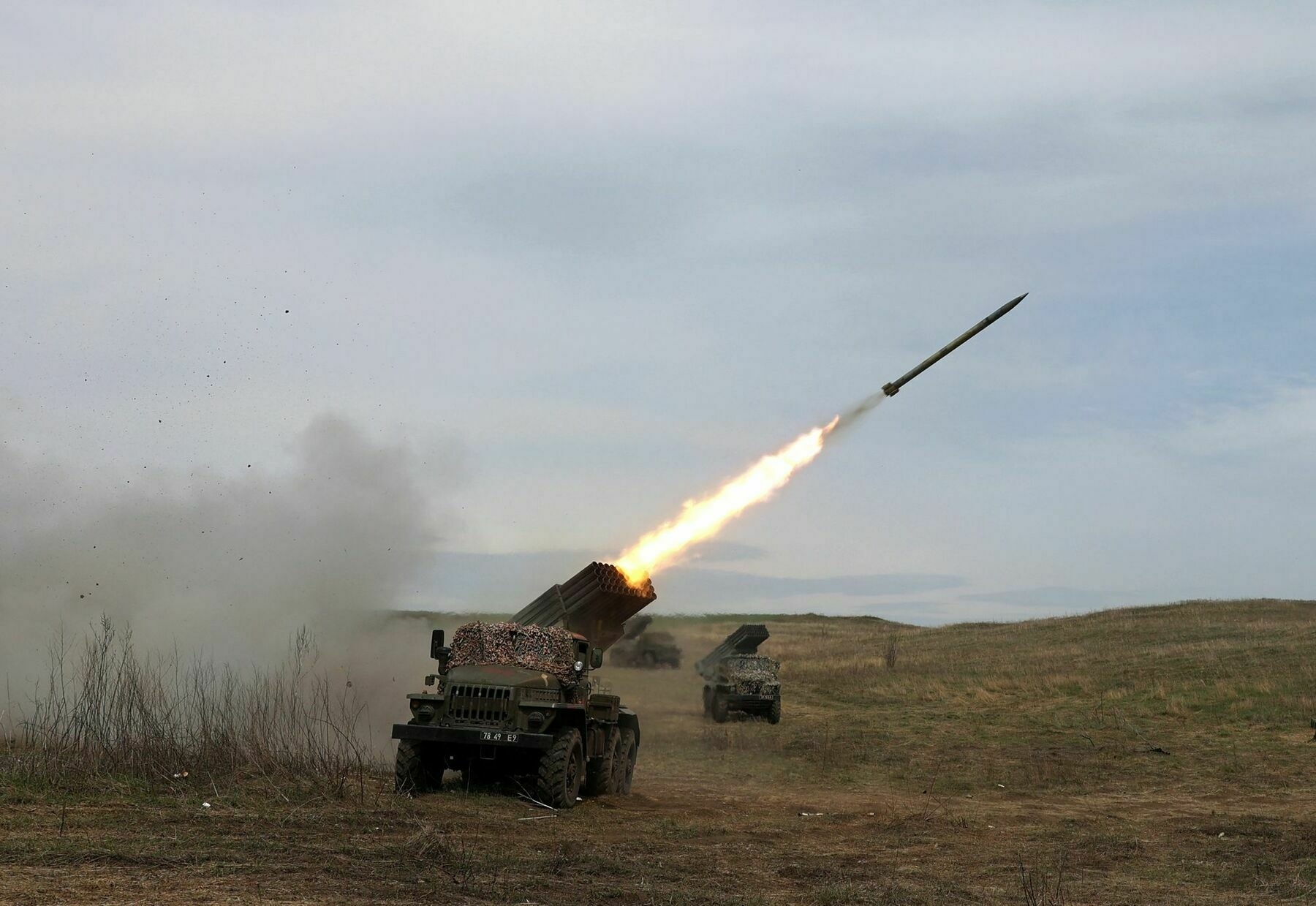
Russia has lost 925,020 troops in Ukraine since the beginning of its full-scale invasion on Feb. 24, 2022, the General Staff of Ukraine’s Armed Forces reported on April 7.
This number includes 1,350 casualties Russian forces suffered just over the past day.
According to the report, Russia has also lost 10,567 tanks, 21,997 armored fighting vehicles, 43,120 vehicles and fuel tanks, 25,817 artillery systems, 1,356 multiple launch rocket systems, 1,124 air defense systems, 370 airplanes, 335 helicopters, 31,874 drones, 28 ships and boats, and one submarine.
‘I don’t like the bombing’ — Trump responds to Russia-Ukraine peace talks question“We are talking to Russia. We would like them to stop,” Trump told reporters on April 6. His comments came after President Volodymyr Zelensky renewed his plea for a decisive response from the U.S. following Russia’s continuous attacks against Ukraine.The Kyiv IndependentOlena Goncharova
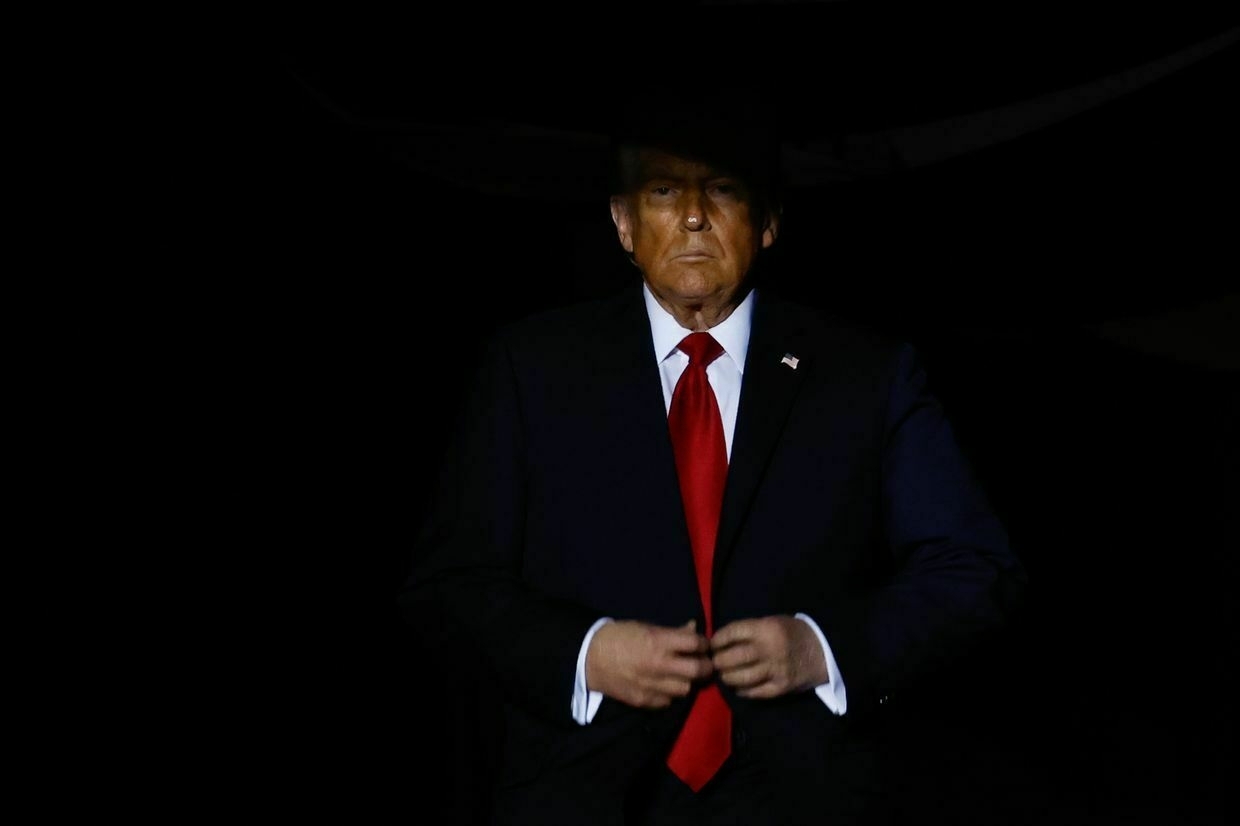
-
'I don’t like the bombing' — Trump responds to Russia-Ukraine peace talks question
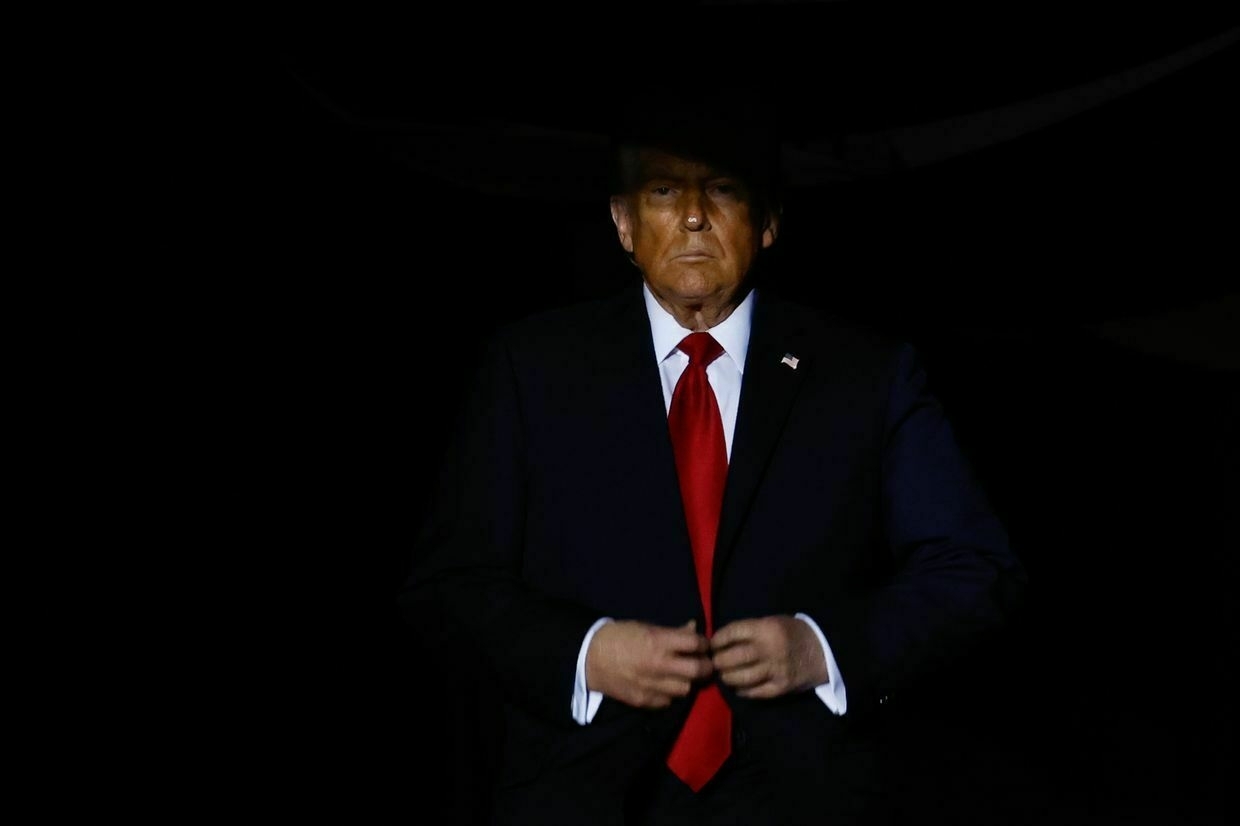
U.S. President Donald Trump reiterated his call for a ceasefire in the Russia-Ukraine war on April 6, urging Russian President Vladimir Putin to stop the violence.
“We are talking to Russia. We would like them to stop,” Trump told reporters onboard Air Force One. “I don’t like the bombing, the bombing goes on and on, and every week thousands of young people being killed.”
His comments came after President Volodymyr Zelensky renewed his plea for a decisive response from the U.S. following Russia’s continuous attacks against Ukraine.
Ukraine has already agreed to a U.S.-proposed full 30-day ceasefire, saying on March 11 that Kyiv is ready to take such a step if Russia also agrees to the terms. So far, Russia has refused.
“Putin does not want to end the war, he is looking for ways to preserve the option of reigniting it at any moment, with even greater force,” Zelensky said in his evening address on April 6.
“That’s exactly why all forms of pressure on Russia must continue: strengthening our ability to defend ourselves, maintaining sanctions, and ensuring that diplomacy – any conversation with Moscow – leaves them no opportunity to kill.”
Zelensky added that Ukraine awaits a response from the United States – “none has come so far – and we also expect a response from all in Europe and around the world who truly want peace."
Zelensky’s address followed Russia’s latest mass attack against Ukraine overnight on April 6. Russian forces launched 23 missiles and 109 drones at Ukraine, targeting Kyiv, Sumy, Kharkiv, Khmelnytskyi, Cherkasy, and Mykolaiv oblasts, Ukraine’s Air Force reported.
Kyiv authorities confirmed one death and three injuries from the overnight attack.
French President Emmanuel Macron also joined the push for a ceasefire. “While Ukraine accepted President Trump’s proposal for a complete and unconditional ceasefire for 30 days nearly a month ago, while we are working with all our partners on ways to secure peace, Russia continues the war with renewed intensity, showing no regard for civilians,” Macron said on X.
“These Russian strikes must stop. A ceasefire must be reached as soon as possible. And strong action must follow if Russia continues to stall and reject peace,” Macron added.
In the meantime, Kremlin negotiator Kirill Dmitriev announced on April 6 that new contacts between Russia and the United States could take place as early as next week.
In an interview with Russia’s state-controlled TV Channel One, Dmitriev expressed “cautious optimism” about the renewed diplomatic engagement and emphasized the importance of restoring bilateral ties.
As Russia refuses to accept ceasefire, will Trump pressure Moscow?Three weeks ago, Ukraine and the U.S. agreed to implement a full 30-day ceasefire. Russia declined to do so, issuing a list of demands instead. On April 4, Russia hit a residential neighborhood in the city of Kryvyi Rih with ballistic missiles and drones, killing 19 people, including nineThe Kyiv IndependentOleg Sukhov
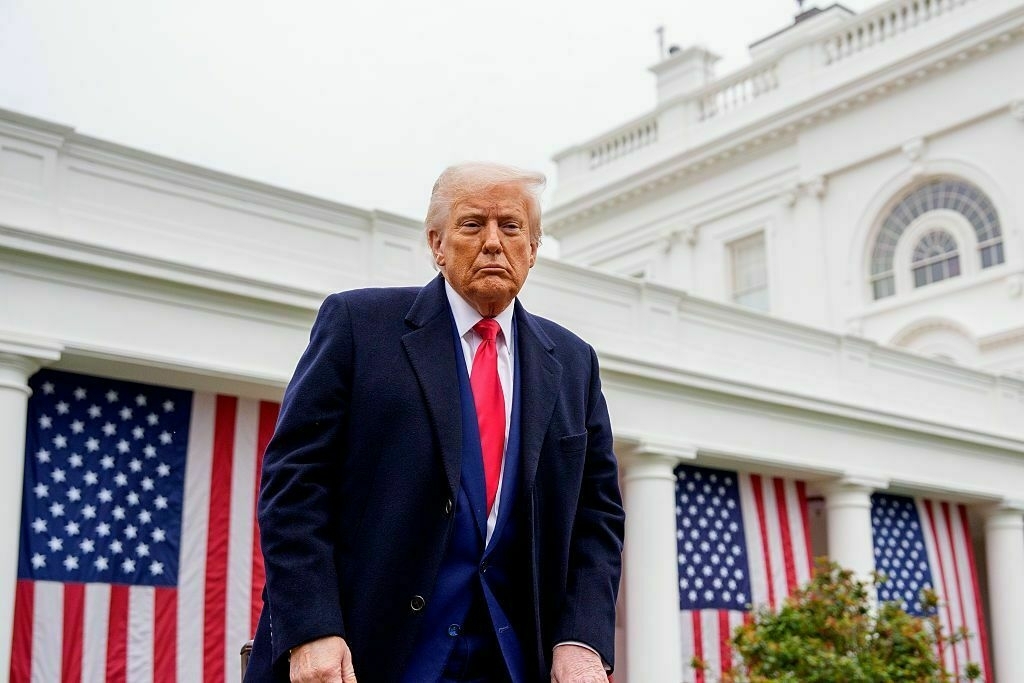
-
US citizen to be forcibly admitted to psychiatric hospital in Moscow ahead of trial
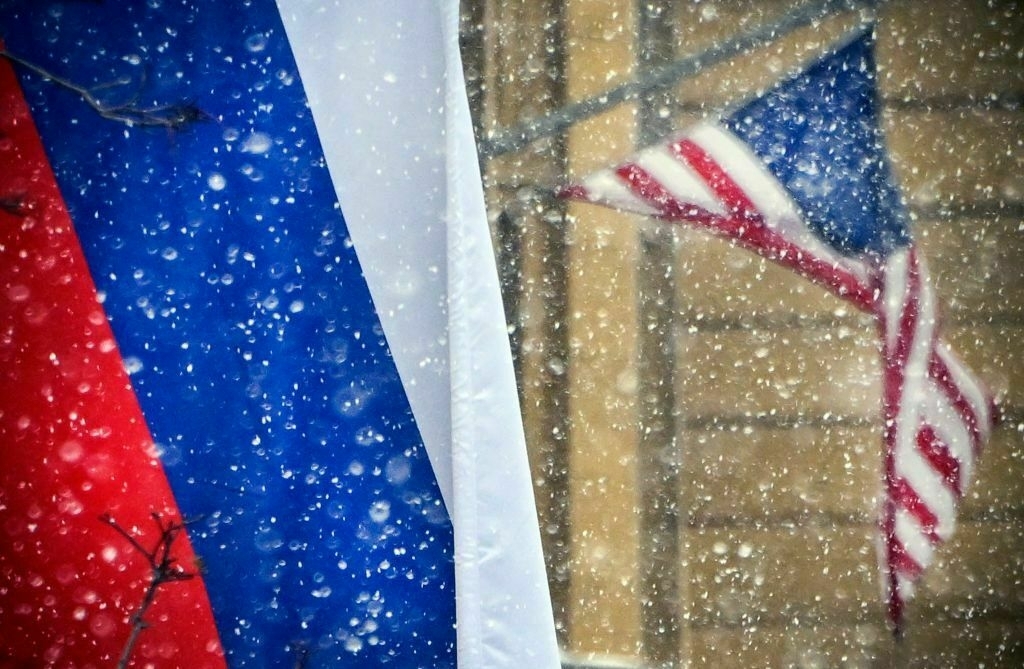
A U.S. citizen awaiting trial in Moscow has been forcibly placed in a psychiatric hospital, according to Russian state media reports on April 6.
Joseph Tater, 46, was arrested in August 2024 after being accused of assaulting a police officer during an altercation with hotel staff in a luxury hotel in the Russian capital. Following a medical evaluation on March 15, a Moscow court approved Tater’s involuntary admission to the psychiatric hospital.
Doctors described Tater as showing signs of “tension, impulsivity, persecutory delusions, and lack of self-awareness regarding his condition,” leading to the court’s decision to have him hospitalized.
Tater was originally scheduled to stand trial on April 14 on charges of assaulting a police officer, which carries a maximum penalty of five years in prison, according to the Associated Press.
Tater’s detention for medical reasons follows his release from pre-trial detention in late March, though it is unclear when the court made the decision to hospitalize him. At a court hearing in September, Tater claimed he had come to Russia seeking political asylum, alleging that he was being persecuted by the CIA.
His defense lawyer has appealed the decision to forcibly hospitalize him, accusing Russian authorities of attempting to “isolate the defendant from society,” according to Russian state media.
Human rights organizations have long criticized Russia for using psychiatric institutions to detain individuals with political views opposed to the government, a practice that dates back to Soviet times.
These groups claim that the Russian government under President Vladimir Putin has increasingly resorted to this tactic in recent years. Tater had already served 15 days in jail for the same incident after being found guilty of administrative charges for “petty hooliganism."
Tater’s case adds to the growing list of Americans detained in Russia on drug or assault-related charges, many of whom are serving lengthy prison sentences. Other Americans, such as Robert Gilman, 72, who was sentenced to 3.5 years for assaulting a police officer after a drunken disturbance, and Travis Leake, a musician sentenced to 13 years for drug charges in July 2024, have faced similar fates in Russia’s legal system.
As Russia refuses to accept ceasefire, will Trump pressure Moscow?Three weeks ago, Ukraine and the U.S. agreed to implement a full 30-day ceasefire. Russia declined to do so, issuing a list of demands instead. On April 4, Russia hit a residential neighborhood in the city of Kryvyi Rih with ballistic missiles and drones, killing 19 people, including nineThe Kyiv IndependentOleg Sukhov
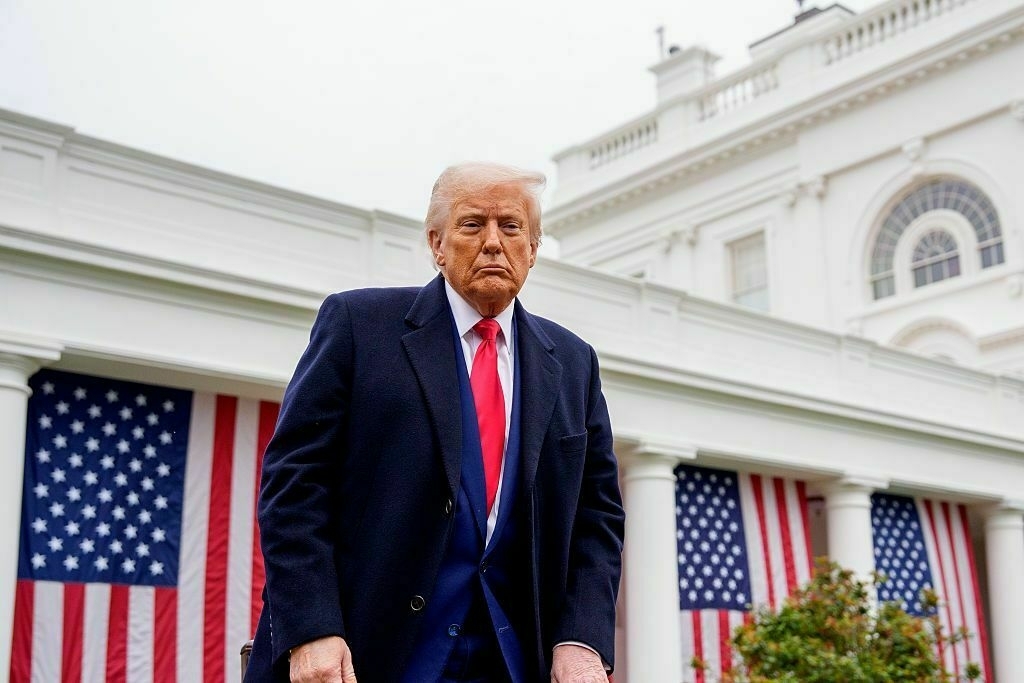
-
Russian sensors found tracking UK nuclear submarines, Sunday Times reports
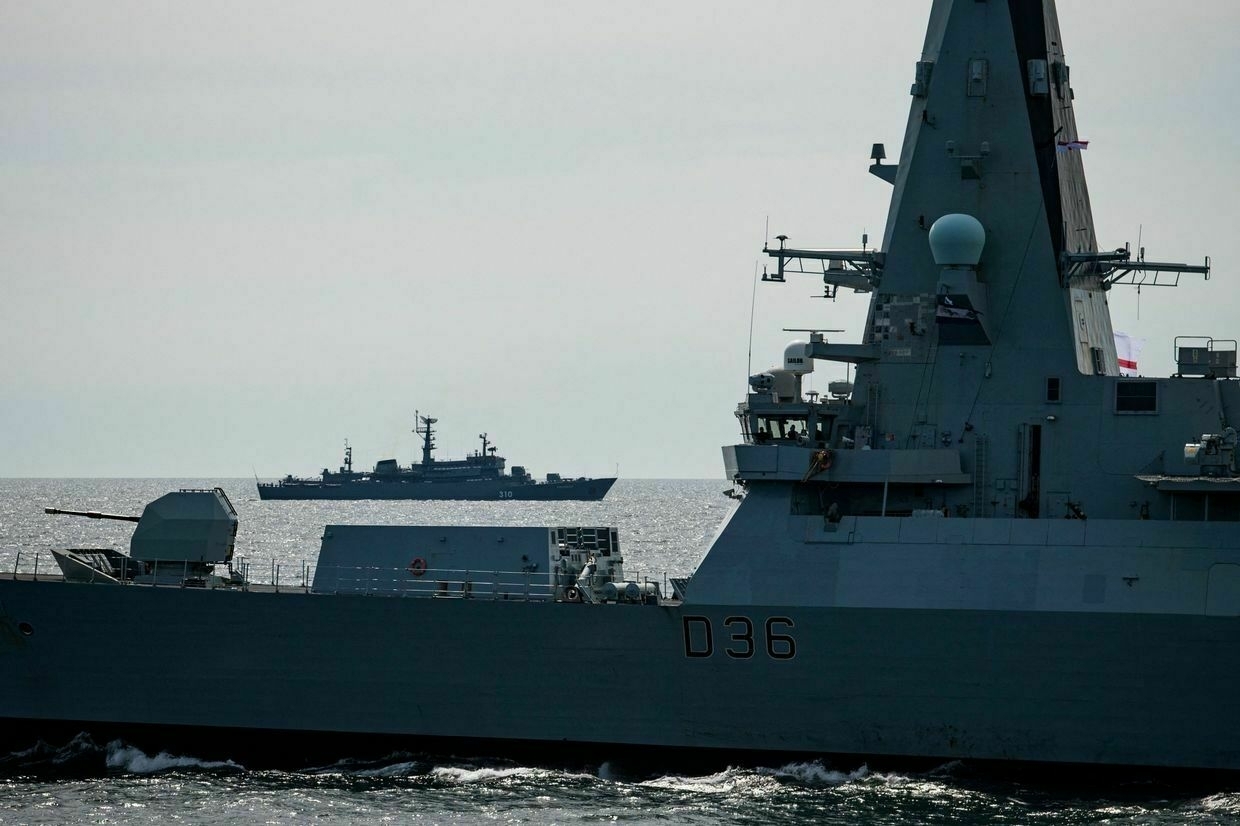
Russian sensors, believed to be part of an effort to spy on the U.K.’s nuclear submarines, have been discovered concealed in the waters surrounding Britain, the Sunday Times reported on April 5.
The U.K. military has discovered several of these sensors after they washed ashore, with more identified by the Royal Navy. These devices are believed to have been planted by Moscow in an effort to gather intelligence on the U.K.’s four Vanguard submarines, which carry nuclear missiles as part of Britain’s continuous at-sea deterrent.
“There should be no doubt, there is a war raging in the Atlantic. This is a game of cat and mouse that has continued since the ending of the Cold War, and is now heating up again. We are seeing phenomenal amounts of Russian activity,” senior serving British military official told the Sunday Times.
The country’s Defense Ministry (MoD) has kept details about the discovery secret, and the Sunday Times decided not to publish information on the sensors' locations.
Russia’s underwater surveillance efforts have extended beyond sensors. The Sunday Times investigation reveals that unmanned Russian vehicles have been found near deep-sea communications cables, and there is credible intelligence suggesting that superyachts owned by Russian oligarchs may have been used for underwater reconnaissance.
Russia’s Baltic Sea sabotage is no accident, it’s strategyIntelligence officials in the U.S. and Europe have suggested that recent incidents damaging critical cables in the Baltic Sea were accidental, according to a Washington Post report. Western geostrategic self-deception has overly emphasized fears of escalation and cornering Russia. It would be naïve…The Kyiv IndependentMika Aaltola

The MoD has also discovered other sensors on the sea bed, raising concerns about Russia’s ability to monitor the movements of the U.K.’s nuclear submarines. While the U.K. has ramped up its surveillance efforts, senior military figures stress the need for further investment in underwater defense capabilities.
The investigation suggests that Russia’s military program, particularly its deep-sea research vessel Yantar, poses a significant threat to Britain’s critical underwater infrastructure. The Yantar, equipped with unmanned underwater vehicles (UUVs) and mini-submarines, has been spotted near vital internet cables and data centers.
According to Royal Navy sources, the Yantar’s presence in U.K. waters signals Russia’s escalating efforts to infiltrate vital communication lines and military cables.
The U.K.’s response includes the deployment of the RFA Proteus, a deep-sea surveillance vessel, tasked with countering Russian threats in domestic waters. The Proteus, operational since 2023, is the only surface ship capable of patrolling the deep-sea areas where Russia’s most advanced threats, such as nuclear-powered mini-submarines, could be lurking.
As Russia refuses to accept ceasefire, will Trump pressure Moscow?Three weeks ago, Ukraine and the U.S. agreed to implement a full 30-day ceasefire. Russia declined to do so, issuing a list of demands instead. On April 4, Russia hit a residential neighborhood in the city of Kryvyi Rih with ballistic missiles and drones, killing 19 people, including nineThe Kyiv IndependentOleg Sukhov
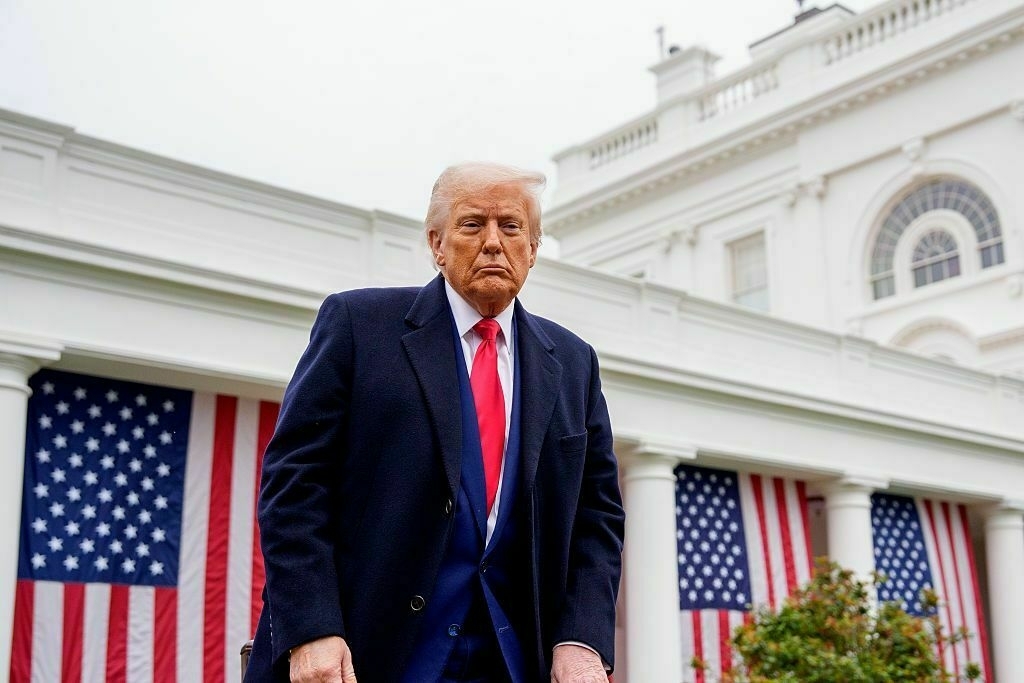
-
Russia excluded from US tariff list due to ongoing ceasefire negotiations, White House says
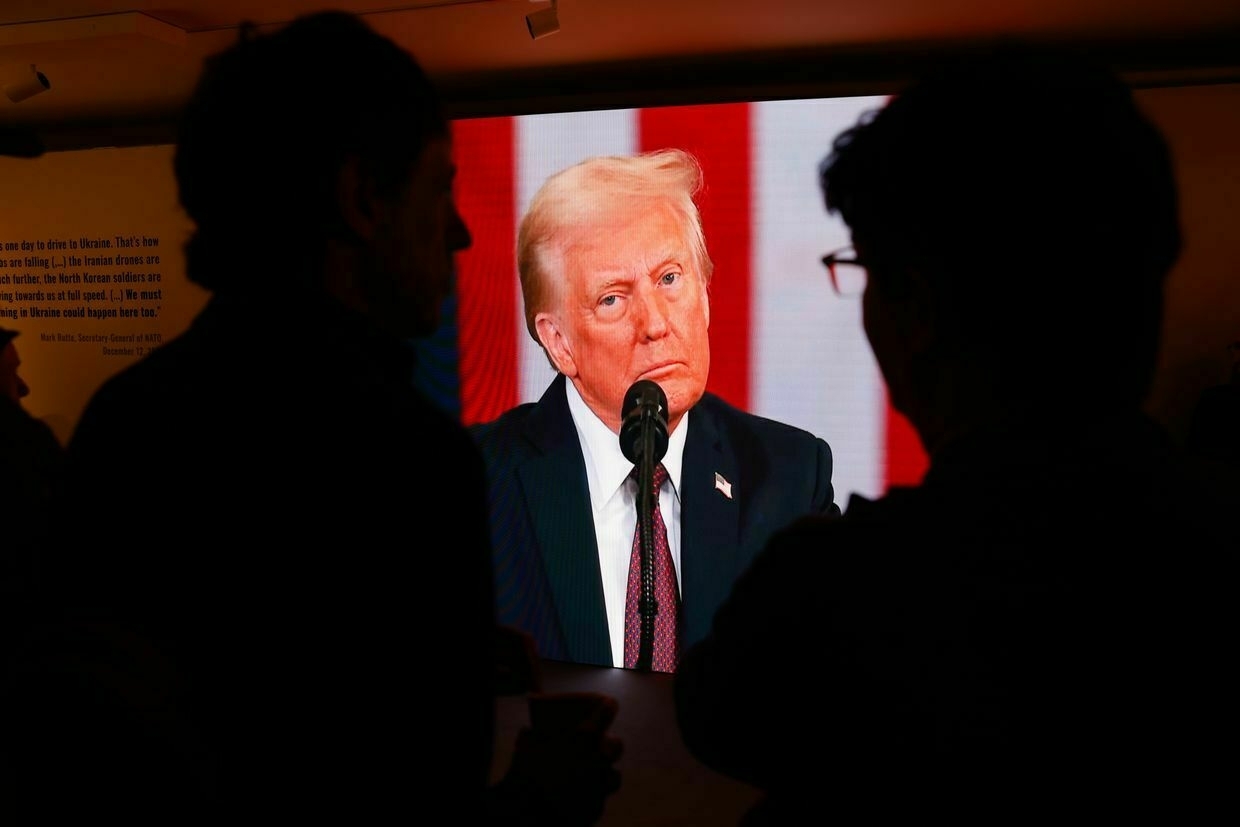
White House National Economic Council Director Kevin Hassett said on April 6 that Russia was excluded from the U.S. tariff list due to ongoing peace negotiations with Ukraine.
In an interview with ABC News, Hassett explained that U.S. President Donald Trump “made the decision not to conflate the two issues,” and that he is focusing on negotiations.
“It’s not appropriate to throw a new thing into these negotiations right in the middle of it. It’s just not,” Hassett said.
Hassett argued that introducing new tariffs during peace talks would risk disrupting diplomatic progress.
“Would you literally advise that you go in and put a whole bunch of new things on the table in the middle of a negotiation that affects so many Ukrainian and Russian lives? No, no,” he said.
Trump’s new tariff policy, announced as part of what he called “Liberation Day,” imposed duties on nearly every major U.S. trading partner, including Ukraine. Kyiv was hit with a 10% tariff, compared to 20% on the EU and 54% on China.
Russia, Belarus, North Korea, and Cuba were notably not included.
Economy Minister Yuliia Svyrydenko said that the Trump administration’s latest tariffs are likely to be “difficult, but not critical” for Ukraine’s economy.
Ukraine’s exports to the U.S. in 2024 amounted to $874 million, including $363 million in cast iron and $112 million in pipes, Svyrydenko said on Facebook. The same year, Ukraine imported $3.4 billion worth of U.S. goods.
The White House’s decision to exclude Russia from the tariff list comes amid growing signs of diplomatic and economic engagement between Washington and Moscow.
Last week, Kremlin negotiator Kirill Dmitriev visited the United States and expressed “cautious optimism” about the future of Russian-American relations, emphasizing a focus on investment cooperation and the beginning of “respectful, good dialogue.”
Trump’s tariffs may hit US defense production including F-35 fighter jet, air defense projects, Politico reportsThe tariffs could undermine international defense cooperation by jeopardizing joint military projects, including producing the F-35 fighter jet, air defense systems, and constructing nuclear submarines.The Kyiv IndependentKateryna Hodunova
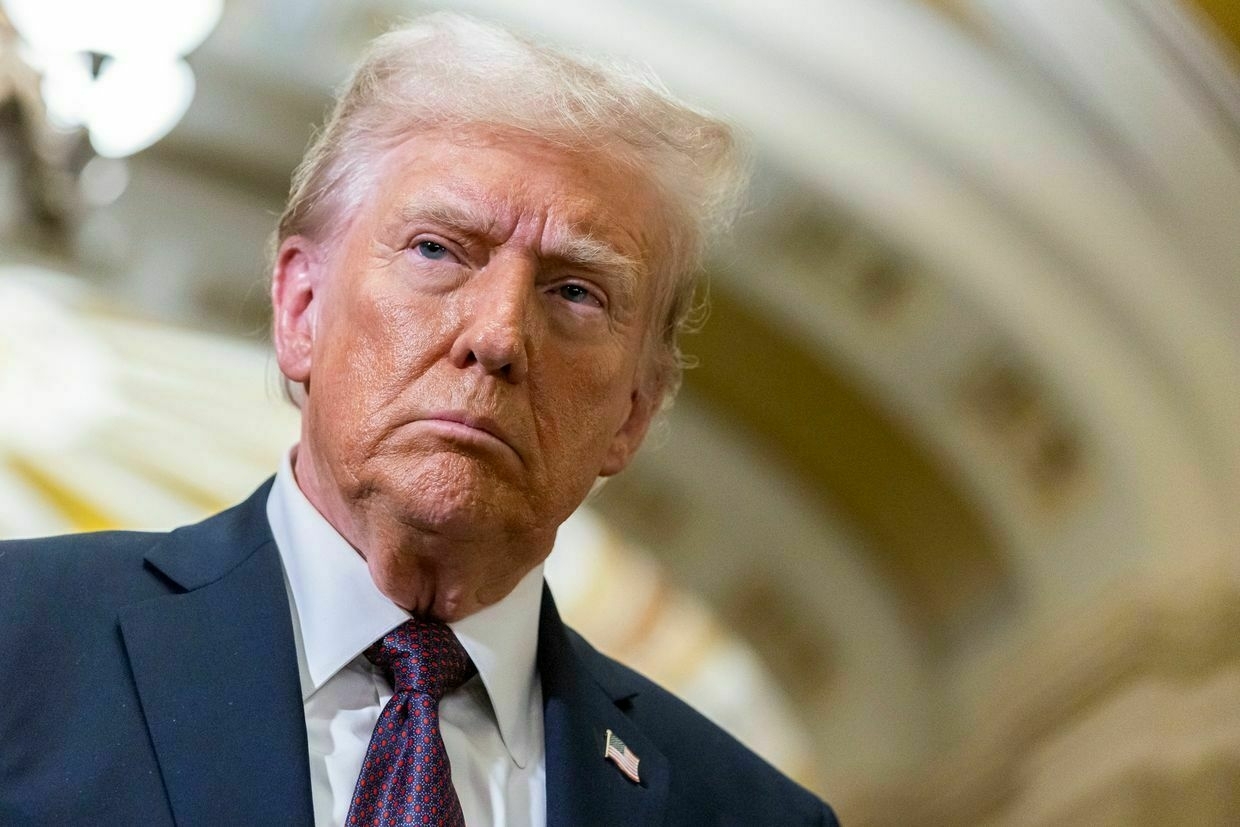
-
Putin’s Answer To Trump’s – "I Haven’t K*lled Enough Yet!" | Weekly Wrap-up
-
Moscow announces beginning of 'respectful dialogue' and new talks with the US
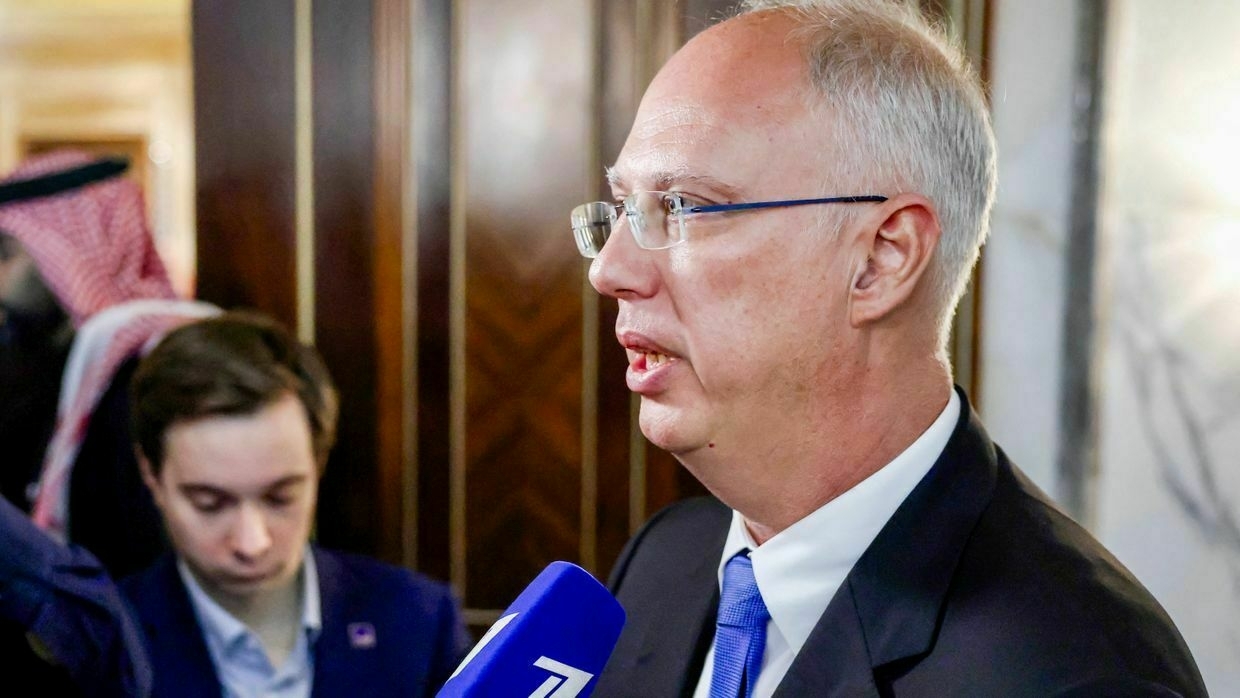
Kremlin negotiator Kirill Dmitriev announced on April 6 that new contacts between Russia and the United States could take place as early as next week.
Dmitriev, in an interview with Russia’s state-controlled TV Channel One, expressed “cautious optimism” about the renewed diplomatic engagement and emphasized the importance of restoring bilateral ties.
“Of course, the big focus is on restoring Russian-American relations, I have been busy with this for a long time, for many years. Of course, the focus is on economic and investment cooperation… We see the beginning of a respectful, good dialogue,” he said.
The announcement comes amid broader Russian efforts to re-engage with the West, including discussions on sanctions and frozen assets.
Dmitriev played a role in backchannel diplomacy between Moscow and Trump when he was first elected in 2016.
The official was then appointed by Putin as his representative for foreign economic relations and was involved in early U.S.-Russian negotiations in Riyadh in February.
Moscow has shown signs it is unwilling to move forward on a peace deal with Ukraine, and Russian authorities have listed maximalist demands in ceasefire negotiations with Ukraine and the U.S.
As a result, U.S. officials have grown increasingly frustrated with Moscow’s slowness in negotiations, according to Bloomberg reports.
However, Dmitriev has praised the administration under Trump for its “constructive and respectful” dialogue with Russia.
Additionally, according to Reuters, talks between Russia and the U.S. have also included the potential restoration of direct flights, U.S. companies re-entering the Russian market, and cooperation in areas such as rare earth metals and Arctic development.
Who is Kirill Dmitriev, Putin’s Trump-whispererKirill Dmitriev, head of Russia’s sovereign wealth fund, has become a key figure in the Kremlin’s outreach to the Trump administration. Russian President Vladimir Putin appointed the 49-year-old Kyiv native as special envoy for economic affairs in an attempt to interest Washington in joint economic…The Kyiv IndependentMartin Fornusek
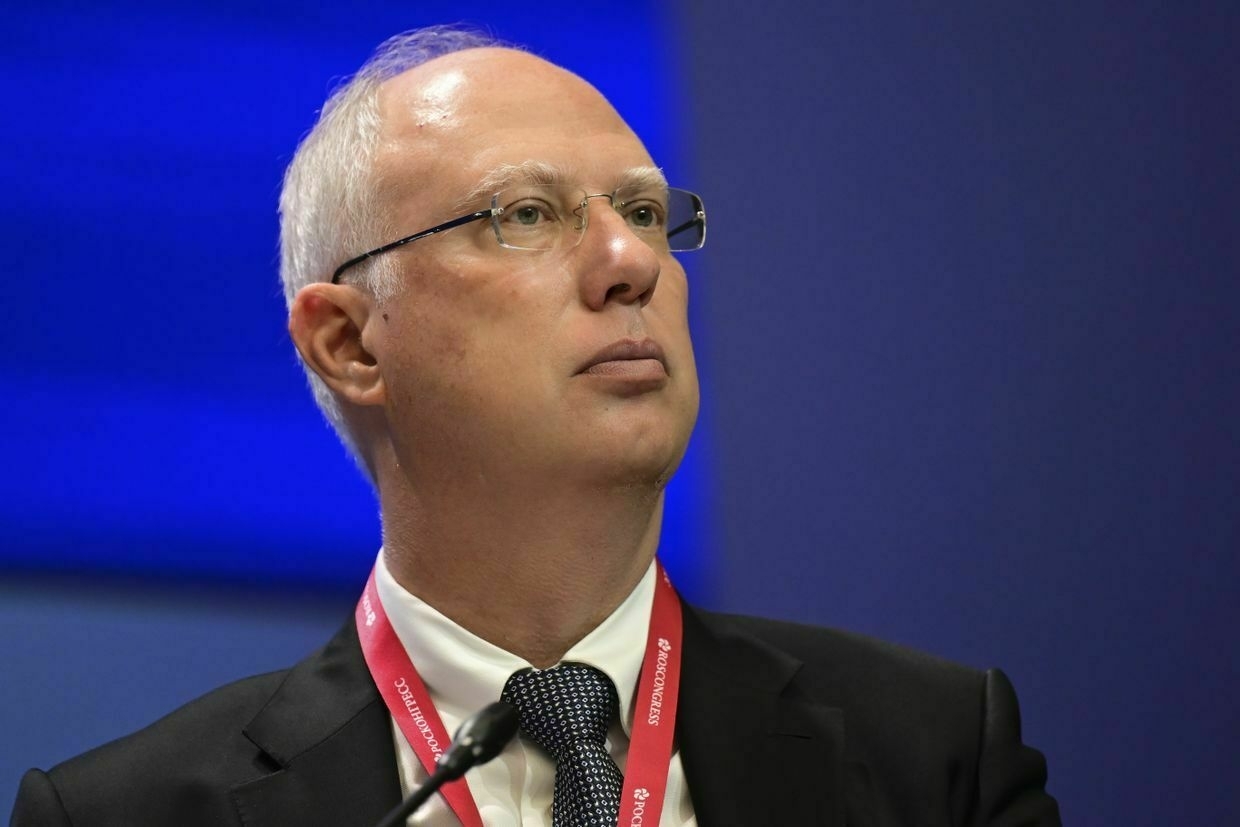
-
'Shoot them' — Russian commander ordered troops to open fire on their comrades, intercepted call suggests
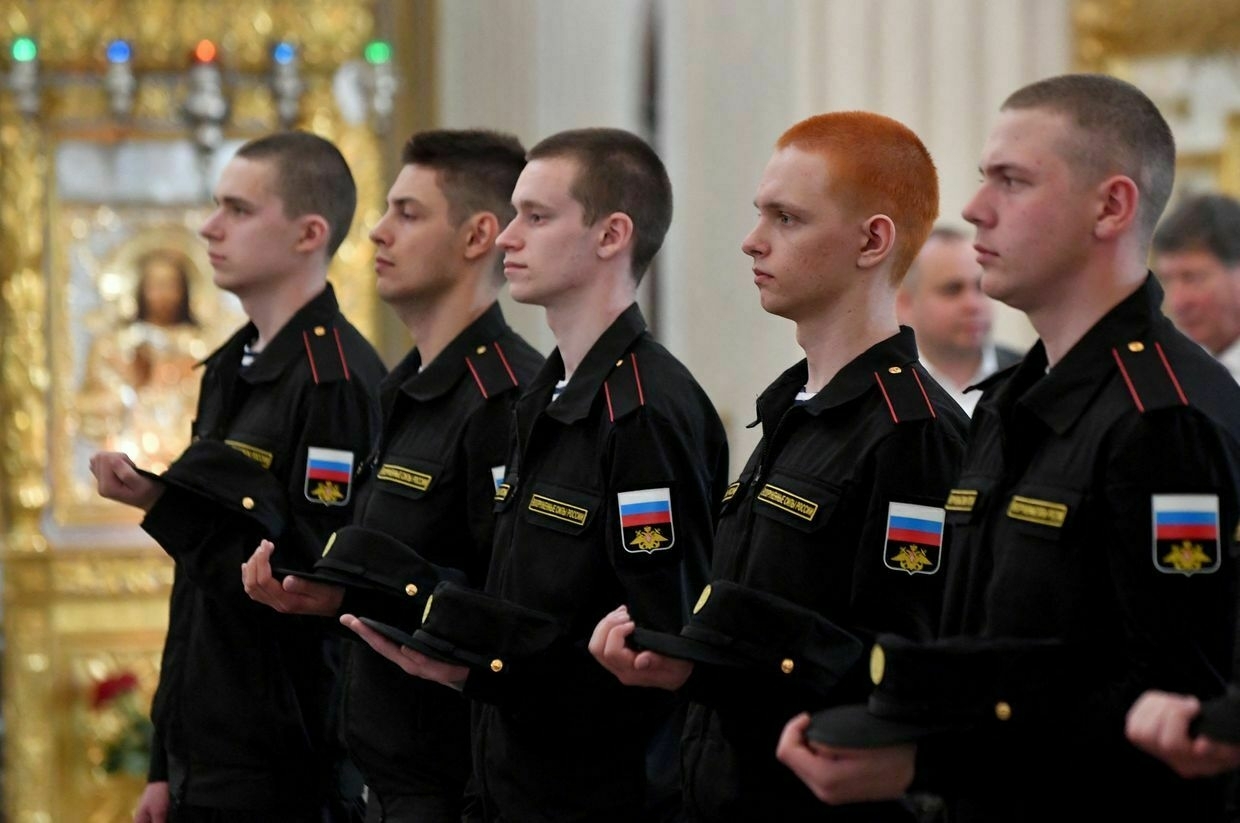
Intercepted calls released by Ukraine’s military intelligence (HUR) suggest a Russian commander losing his temper and ordering his soldiers to shoot at their own comrades in a neighbouring unit.
“Fk the 55th (an adjacent Russian unit), shoot them, that’s the battalion commander’s order, shoot them,” a Russian commander can be heard saying in an audio published by HUR on April 5.
The unidentified Russian commander appears frustrated at the adjacent Russian unit for not properly following an order and revealing their positions to Ukrainian troops.
The Kyiv Independent couldn’t independently verify the authenticity of the audio published by HUR.
Much remains unknown about the scale of such incidents in the Russian military, which has relied on its vast manpower to gradually gain ground across Ukraine’s front.
Despite the heavy losses, they have managed to capture some of Ukraine’s last strongholds in the Donbas region in the second half of 2024.
Multiple incidents of “friendly fire” in the Russian army have been reported.
In December, HUR claimed that North Korean troops fighting alongside Moscow opened fire and killed eight Russian servicemen.
Inside Ukraine’s desperate race to train more soldiersNew recruit Vitalii Yalovyi knew one thing after completing the Ukrainian military’s boot camp: He was not prepared for war. The 37-year-old felt physically unfit, forcing him to miss some courses during the month-long training. His leg was still hurting from long daily walks at a training center i…The Kyiv IndependentAsami Terajima
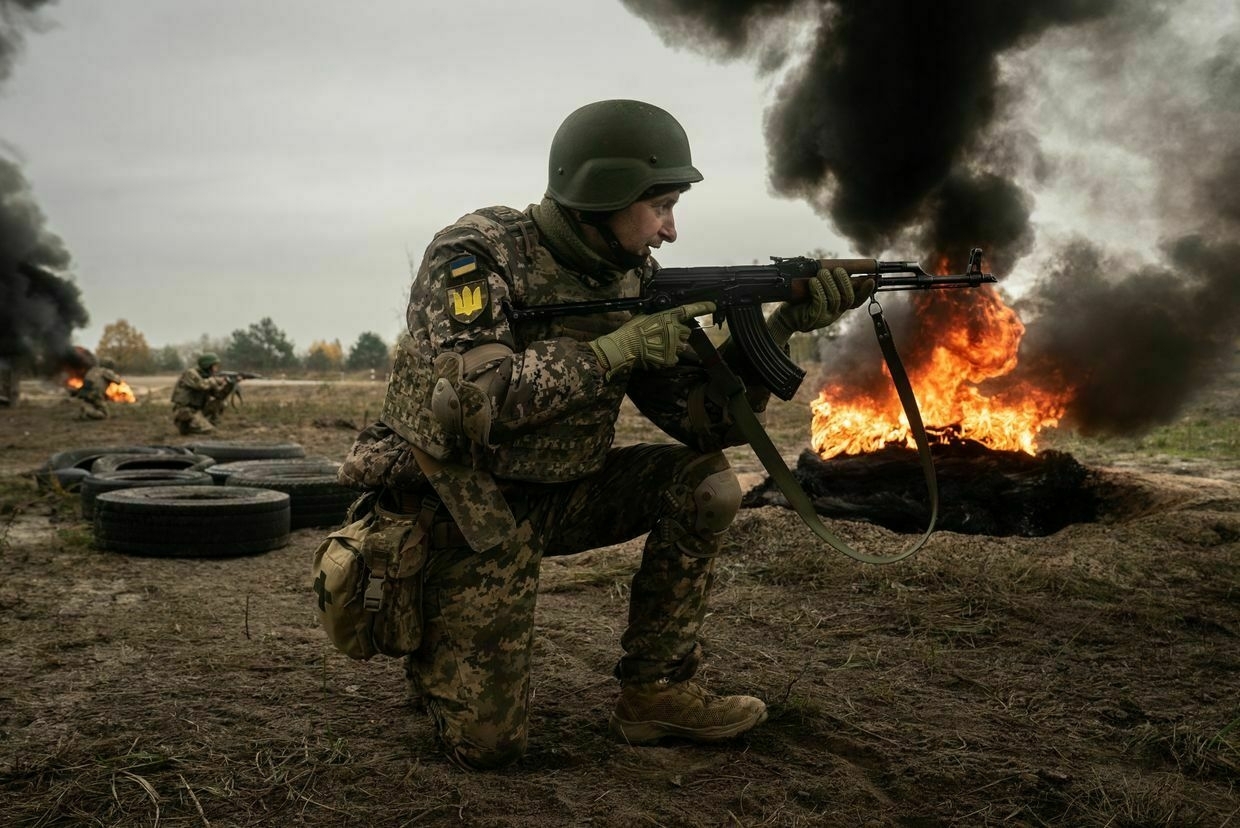
Intercepted calls published by HUR last month suggested Russians living in oblasts bordering Ukraine celebrated recent drone attacks against Moscow as people living there “live their lives without fear."
On March 11, Ukraine launched the largest drone attack against Russia’s capital during the full-scale war. Seventy-four drones were shot down on approach to Moscow in the early hours of the day.
Belgorod and Bryansk oblasts border Ukraine and often come under attack as they are two regions from which Russian forces launch missile and drone attacks against Ukrainian cities.
Phone conversations intercepted by HUR suggest that some Russians living in these oblasts welcomed the news of the attack on Moscow. They presented it as a chance for those living in the capital to experience the effects of the war that they witness on a regular basis.
“So we can be fking bombed, but Moscow Oblast is not? Let the bastards shut up and stay put!” one woman in Russia’s Bryansk Oblast said in a call released by HUR on March 29.
“They live their lives without fear, without knowing anything. Let them be at least a little bit afraid,” the person she was speaking to responded.
As Russia refuses to accept ceasefire, will Trump pressure Moscow?Three weeks ago, Ukraine and the U.S. agreed to implement a full 30-day ceasefire. Russia declined to do so, issuing a list of demands instead. On April 4, Russia hit a residential neighborhood in the city of Kryvyi Rih with ballistic missiles and drones, killing 19 people, including nineThe Kyiv IndependentOleg Sukhov
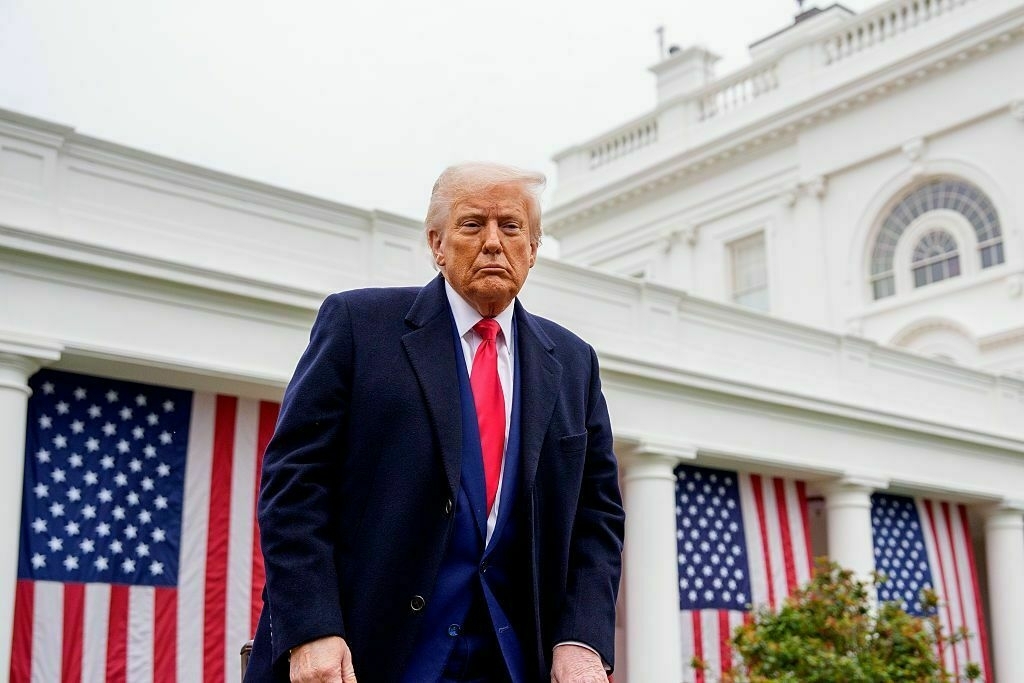
-
US neo-Nazi terrorist group pays recruits to carry out attacks in Ukraine, Guardian reports
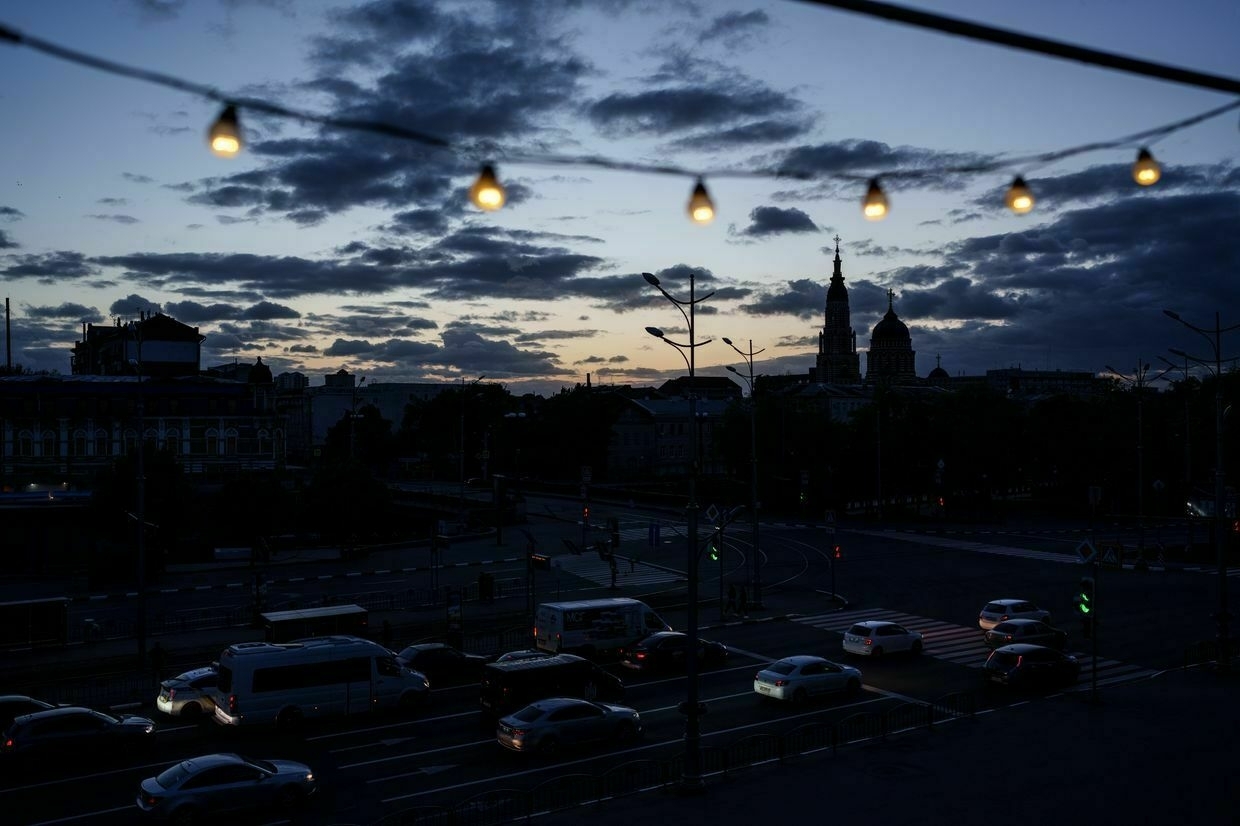
A U.S. neo-Nazi terrorist group with links to Russia is offering locals payment to carry out attacks, the Guardian reported on April 5.
Russia actively tries to recruit civilians in Ukraine to spy on military targets and carry out terrorist attacks throughout the country. On April 3, at least one person was killed in a Kyiv explosion.
The Base is a neo-Nazi terrorist group established in 2018. The group’s leader, Rinaldo Nazzaro, is a U.S. citizen who now lives in St. Petersburg, Russia.
Nazzaro is a former Federal Bureau of Investigation (FBI) and Pentagon employee.
Locals are being asked to conduct attacks on “electric power stations, military and police vehicles, military and police personnel, government buildings, (and) politicians” in various cities, including Kyiv.
“Given Russia’s connections to the leadership of the Base, including offering sanctuary to its leader Rinaldo Nazzaro, there is a strong chance that this could very well be a Russian intelligence operation,” geopolitics expert Colin Clarke told the Guardian.
The terrorist group was extensively investigated by the FBI since its founding in 2018. Under U.S. President Donald Trump’s administration, the FBI has cut back on investigations into far-right groups.
Previously, the Base did not align itself with Russia. The change likely means the terrorist group is carrying out sabotage across Europe, experts told the Guardian.
“Supporting and directing violent non-state actors, including racially and ethnically motivated violent extremists, is just another tool in the Kremlin’s hybrid warfare toolkit, and one which Moscow has repeatedly demonstrated that it’s willing to use,” Clarke said.
The Base is designated as a terrorist group in various jurisdictions, including Canada, the EU, and the U.K.
On April 4, Yuriy Fedko, an official in Dnipro, was killed in a car explosion. Police say several possible scenarios are being investigated, including an attack ordered by Russia to destabilize the situation in Ukraine.
Who is Kirill Dmitriev, Putin’s Trump-whispererKirill Dmitriev, head of Russia’s sovereign wealth fund, has become a key figure in the Kremlin’s outreach to the Trump administration. Russian President Vladimir Putin appointed the 49-year-old Kyiv native as special envoy for economic affairs in an attempt to interest Washington in joint economic…The Kyiv IndependentMartin Fornusek
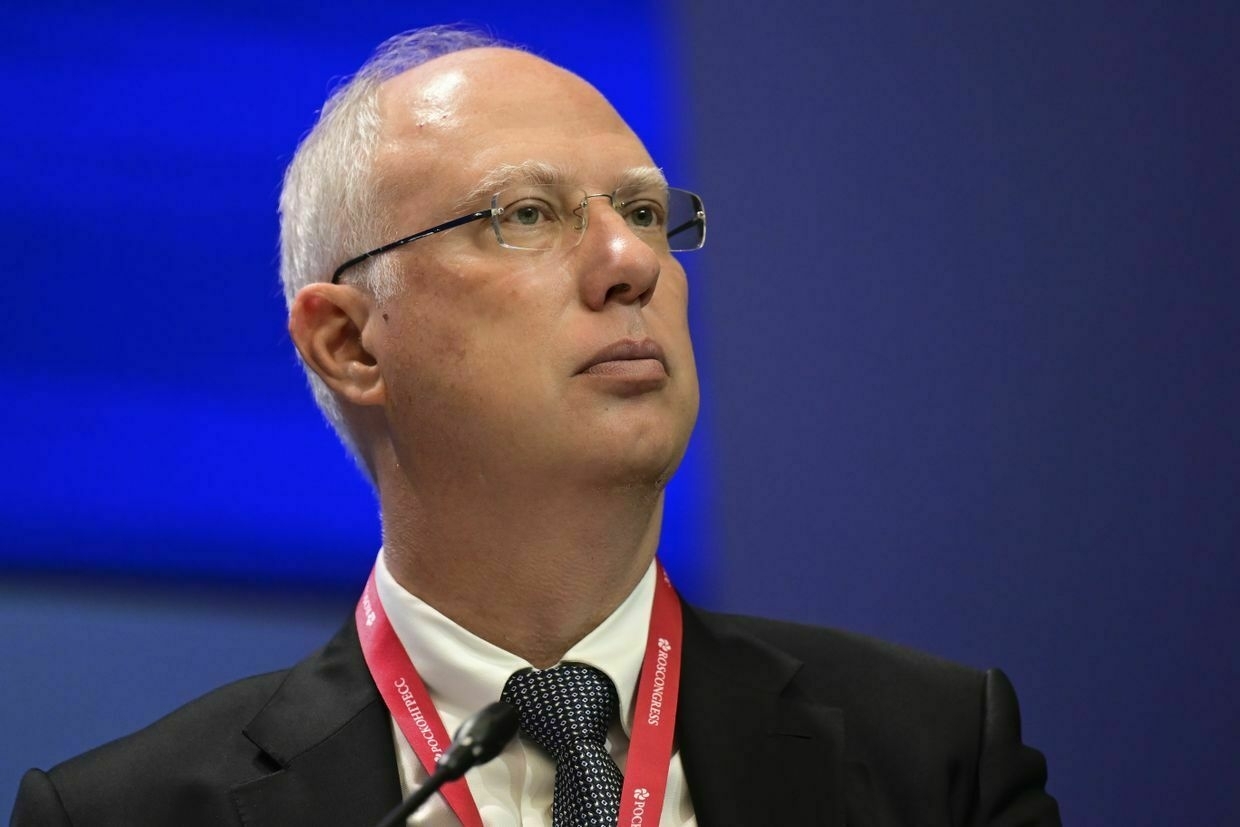
-
Minerals deal disrupted by those with 'their hand in the till,' US official claims
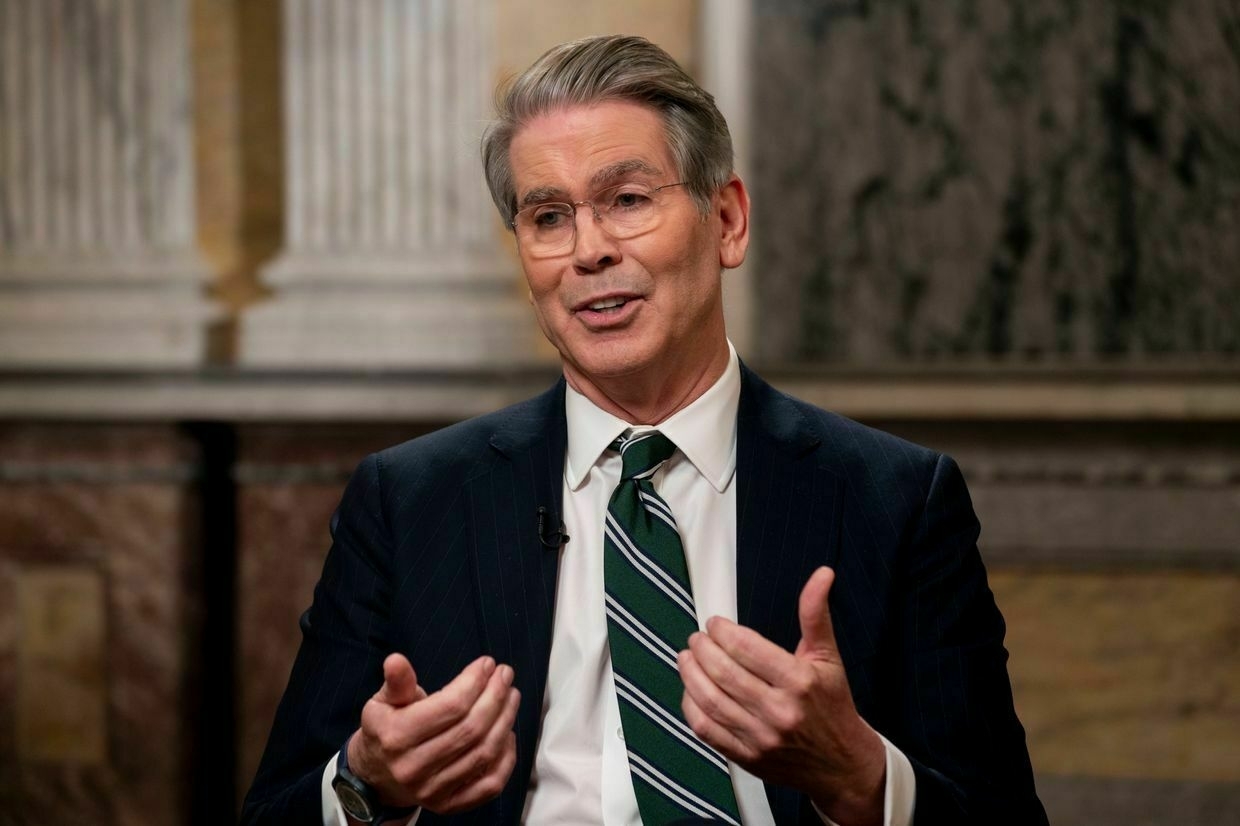
The minerals deal between Ukraine and the U.S. is a “win-win,” but has been thrown off by Ukrainian leadership, U.S. Treasury Secretary Scott Bessent claimed in an interview released on April 4 with U.S. far-right political commentator Tucker Carlson.
“It’s a genuine economic partnership… we don’t make any money unless they make money, and you know who doesn’t like that? People with their hand in the till,” Bessent claimed.
"(T)he Russians didn’t like the look of this deal because they thought it was actually something durable for the U.S. people and the Ukrainian people," he added.
Bessent said on April 2 that a Ukrainian delegation would arrive in the U.S. in the coming days to work on the mineral agreement. The deal was previously set to be signed on February 28 with a visit by President Volodymyr Zelensky to the White House.
“We’re expecting a Ukrainian technical team (at the) beginning of next week, and I’m hopeful we can get this thing signed and go back to a win-win situation,” Bessent said, confirming his earlier remarks.
U.S. President Donald Trump wanted to use the deal as a signal that the U.S. stands with Ukraine as an economic partner, Bessent said, adding that it would incentivize Russia to negotiate an end to its war against Ukraine.
“The sequencing has been thrown off, but I think we can fix it,” Bessent said, referring to the steps the U.S. plans to take in establishing a peace plan.
Bessent said the deal will bring the U.S. and Ukraine “closer together,” prove the U.S. is not abandoning Ukraine, and show the American people the U.S. has an economic stake in Ukraine.
"Ukraine…because of various kleptocracy aspects, has been held back. So hopefully with U.S. assistance and President Trump engineering this peace deal, Ukrainian people can have a better future," Bessent claimed.
Throughout his interview with Carlson, Bessent repeatedly claimed that the deal would benefit the U.S. and Ukraine.
“Ukraine succeeds, we succeed, and it could be a long-term partnership,” Bessent said.
“If this deal works (the aid the U.S. has provided to Ukraine) could end up being small change,” he said.
Bessent claimed Zelensky said he would sign the minerals deal at the February Munich Security Conference, but never did.
Bessent visited Zelensky in Kyiv on Feb. 12, where a deal was never signed.
“I thought it was important to take the agreement to Kyiv and present it to President Zelensky,” Bessent said.
Bessent criticized Zelensky and his inner circle for failing to sign the minerals deal on several occasions.
“He got to the Oval Office and blew up what should have been the easiest thing to do in the world,” he said.
Zelensky “assumed a high-handed tone” with U.S. officials, Carlson claimed in his interview with Bessent.
“He (Zelensky) is not getting the best advice… His advisors are not perfect,” Bessent said.
Ukrainian and U.S. officials have met in Saudi Arabia several times, where Ukraine has agreed to a full 30-day ceasefire. Russia has not.
Inside Ukraine’s desperate race to train more soldiersNew recruit Vitalii Yalovyi knew one thing after completing the Ukrainian military’s boot camp: He was not prepared for war. The 37-year-old felt physically unfit, forcing him to miss some courses during the month-long training. His leg was still hurting from long daily walks at a training center i…The Kyiv IndependentAsami Terajima
